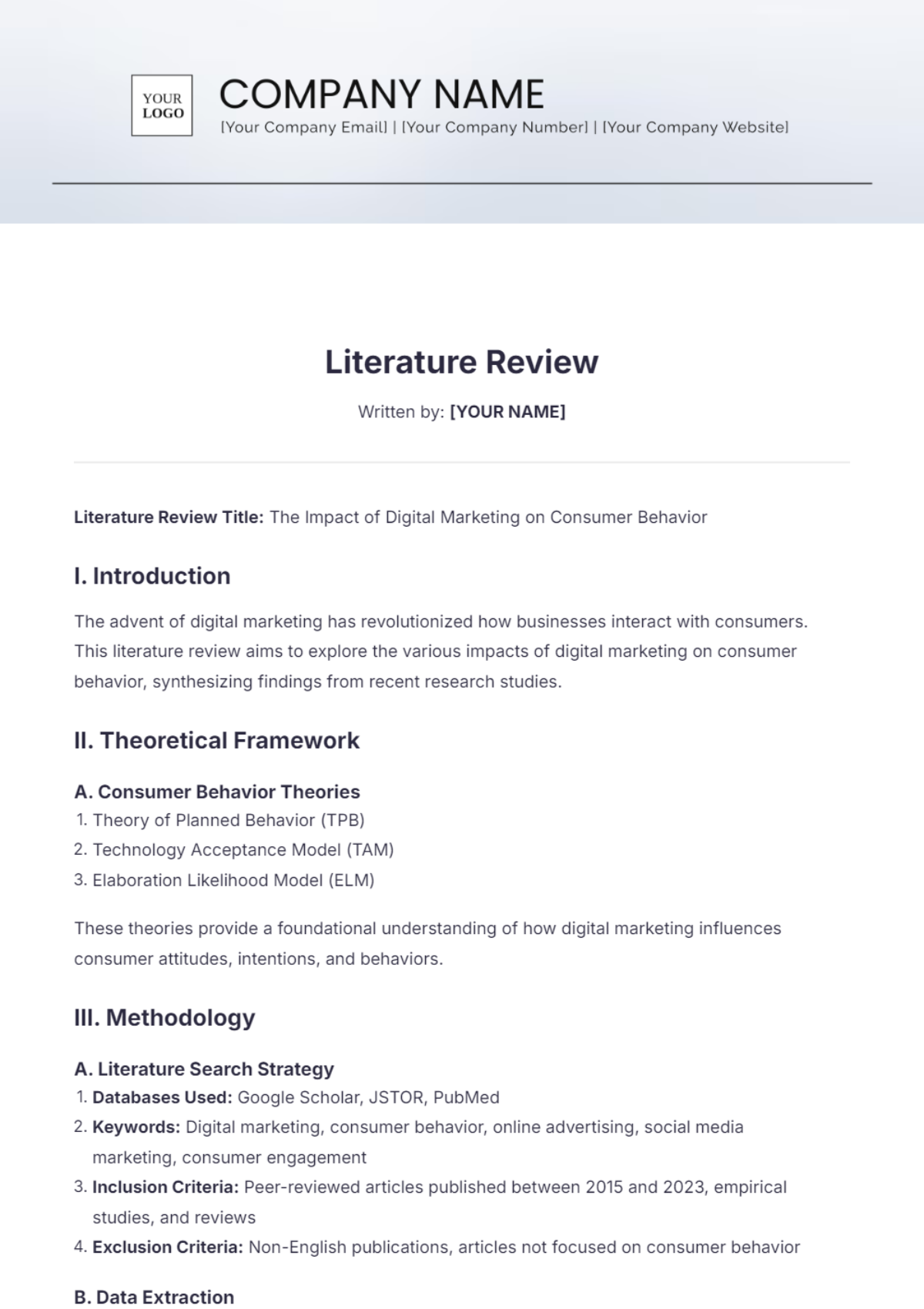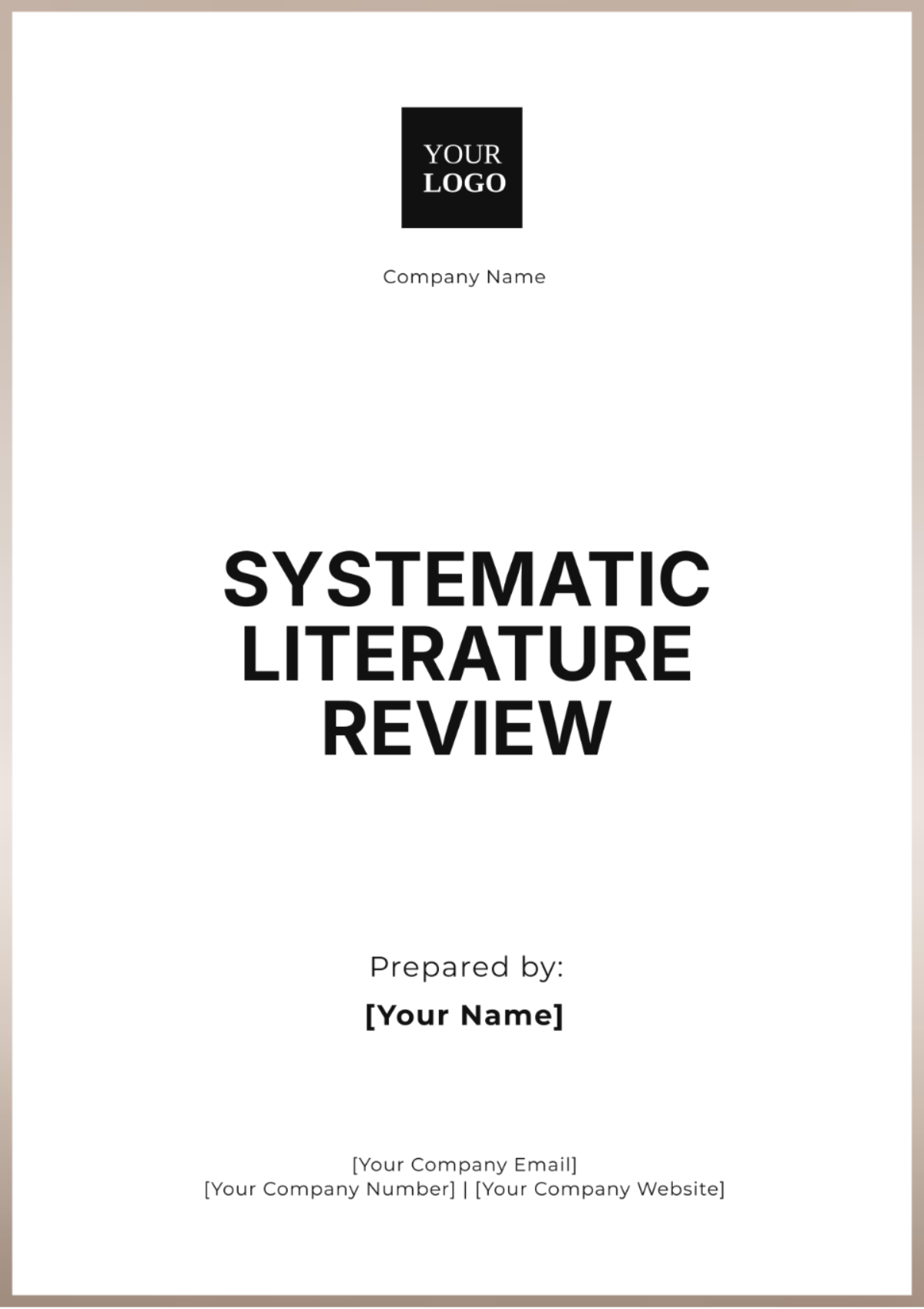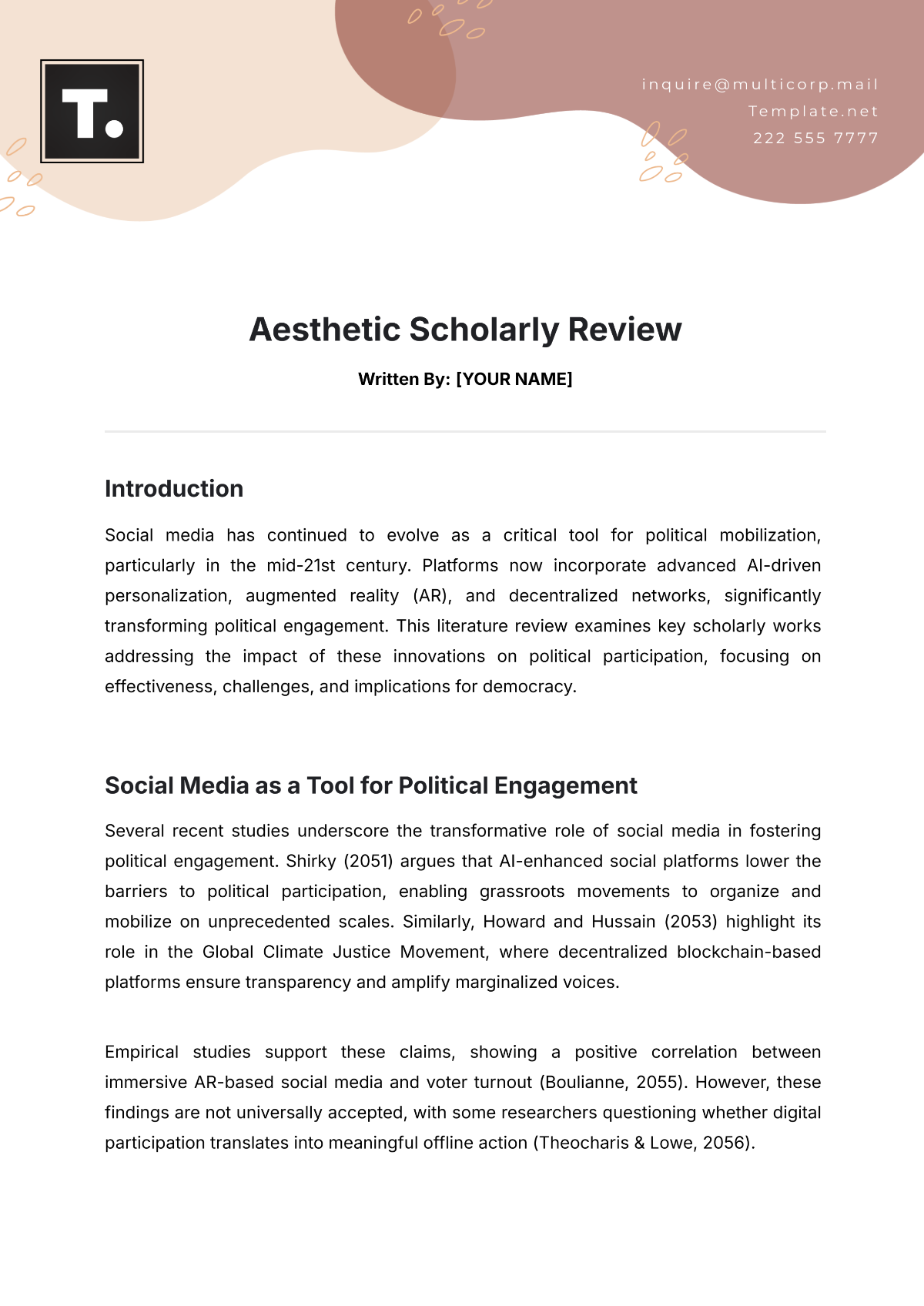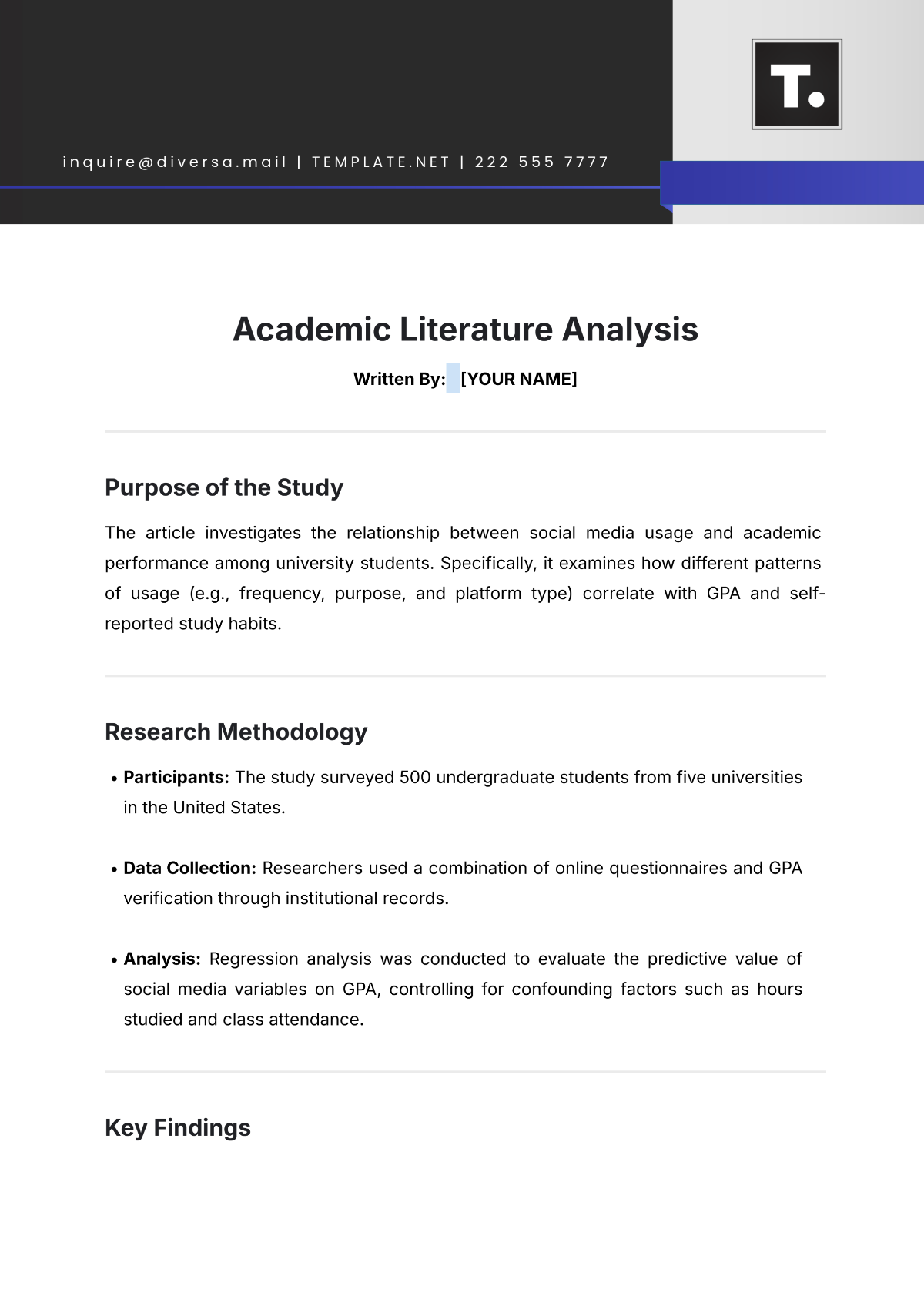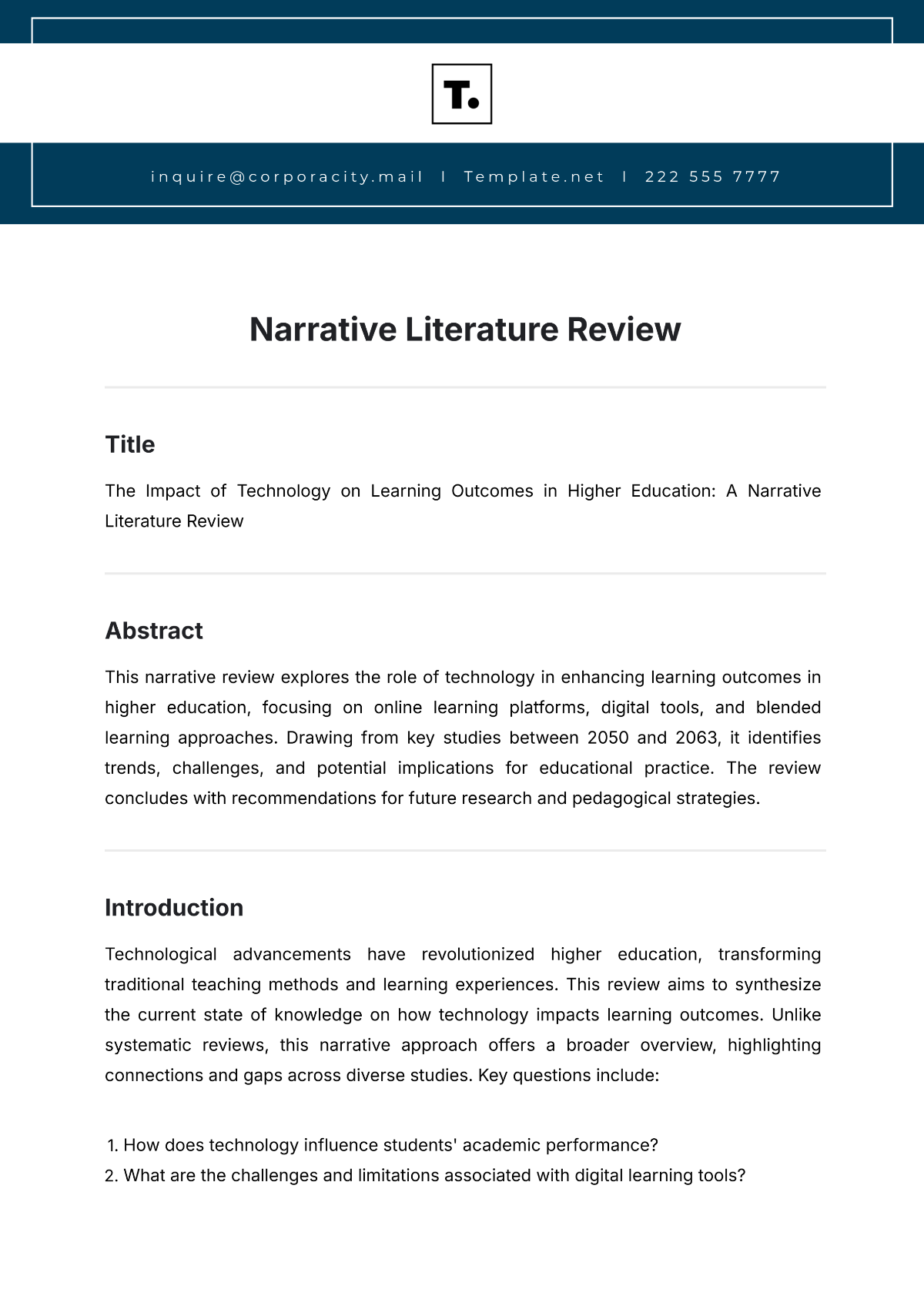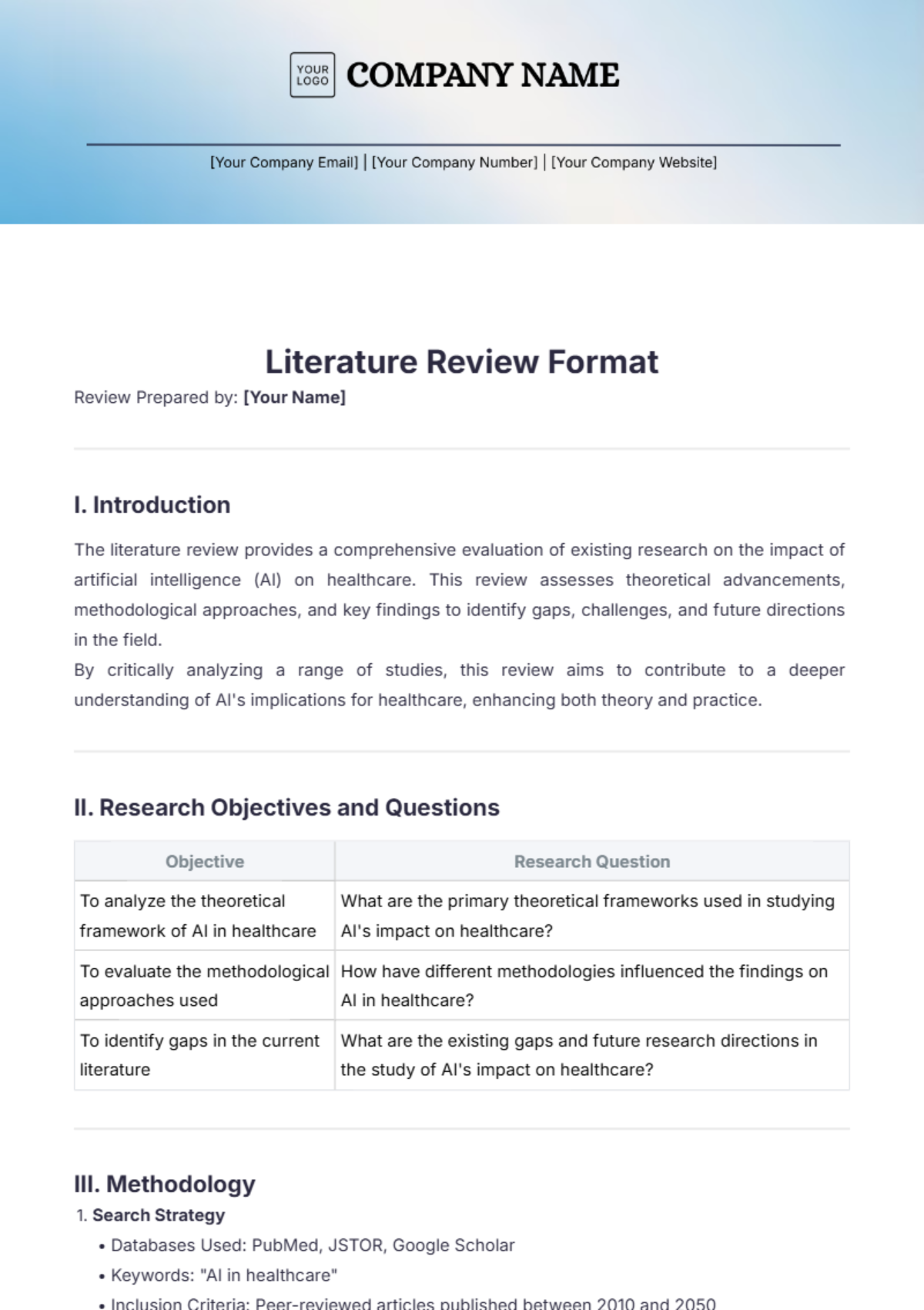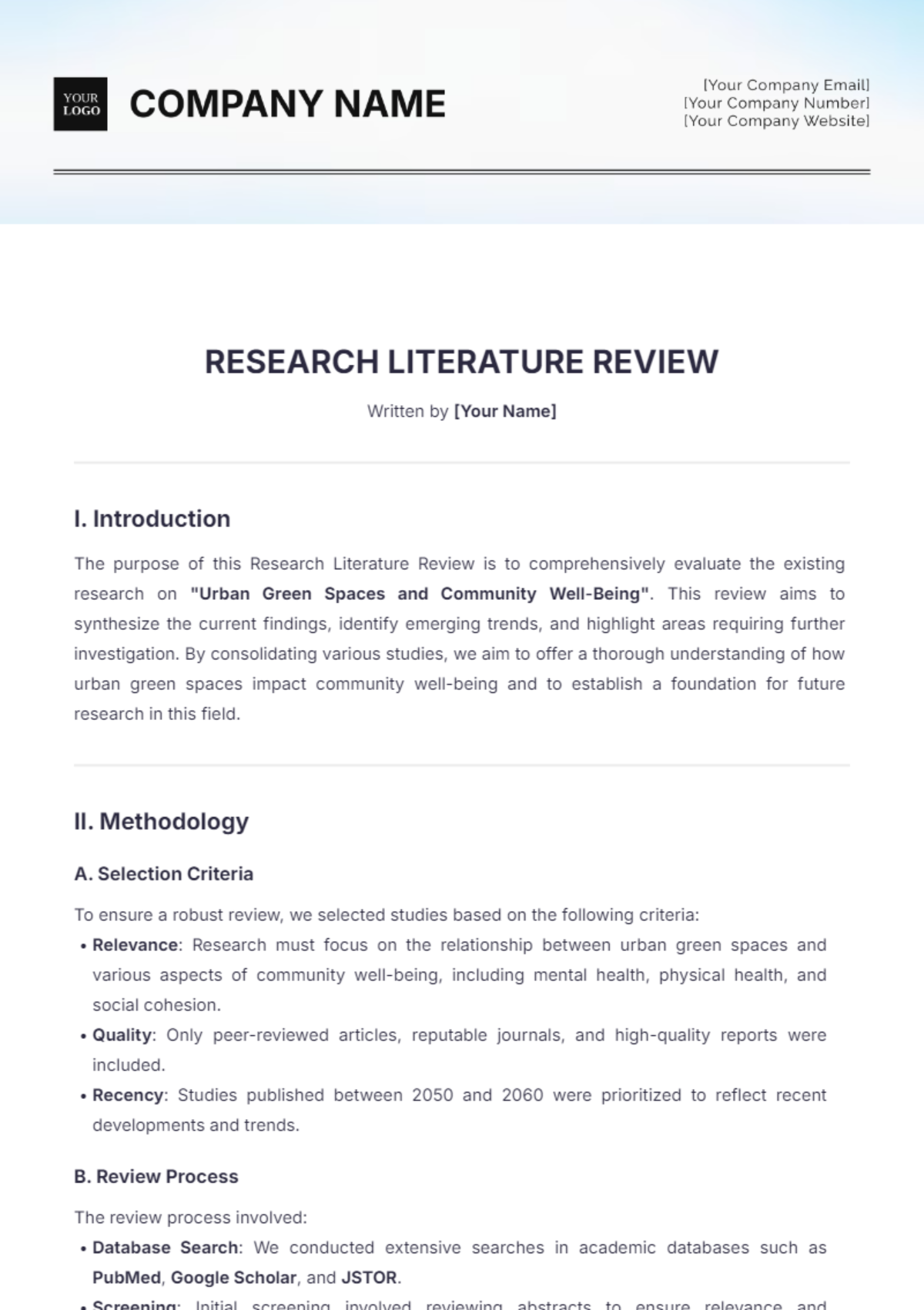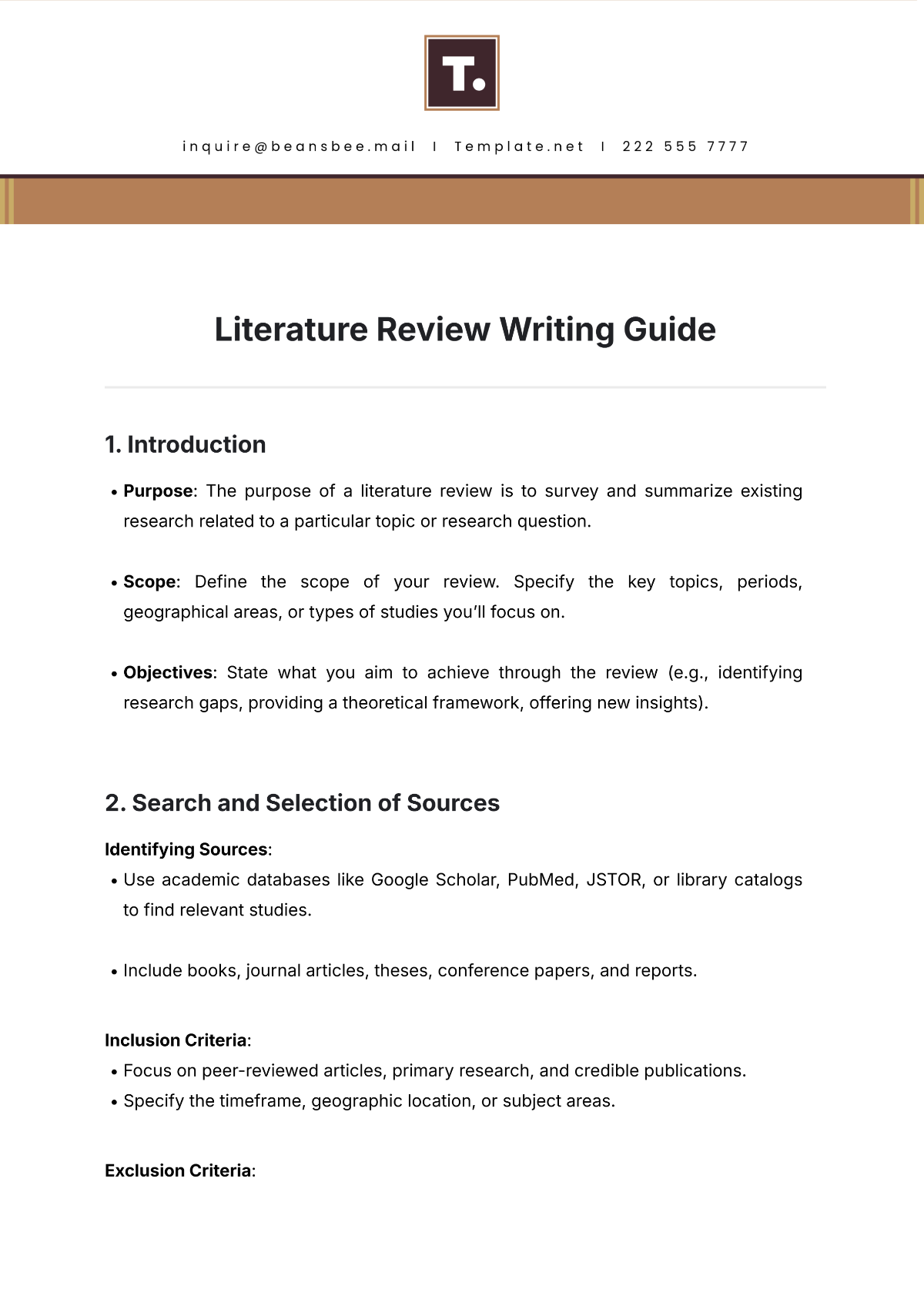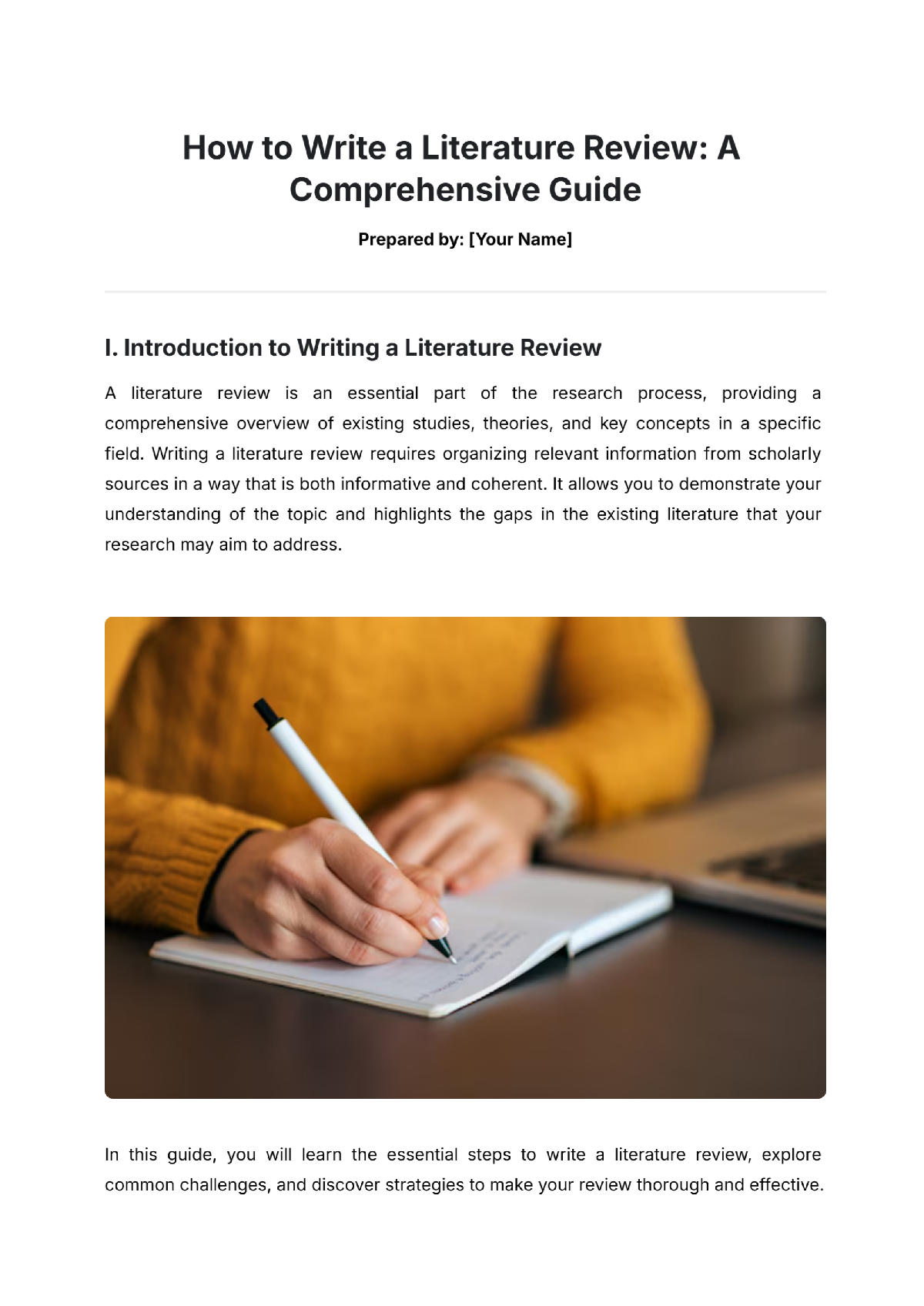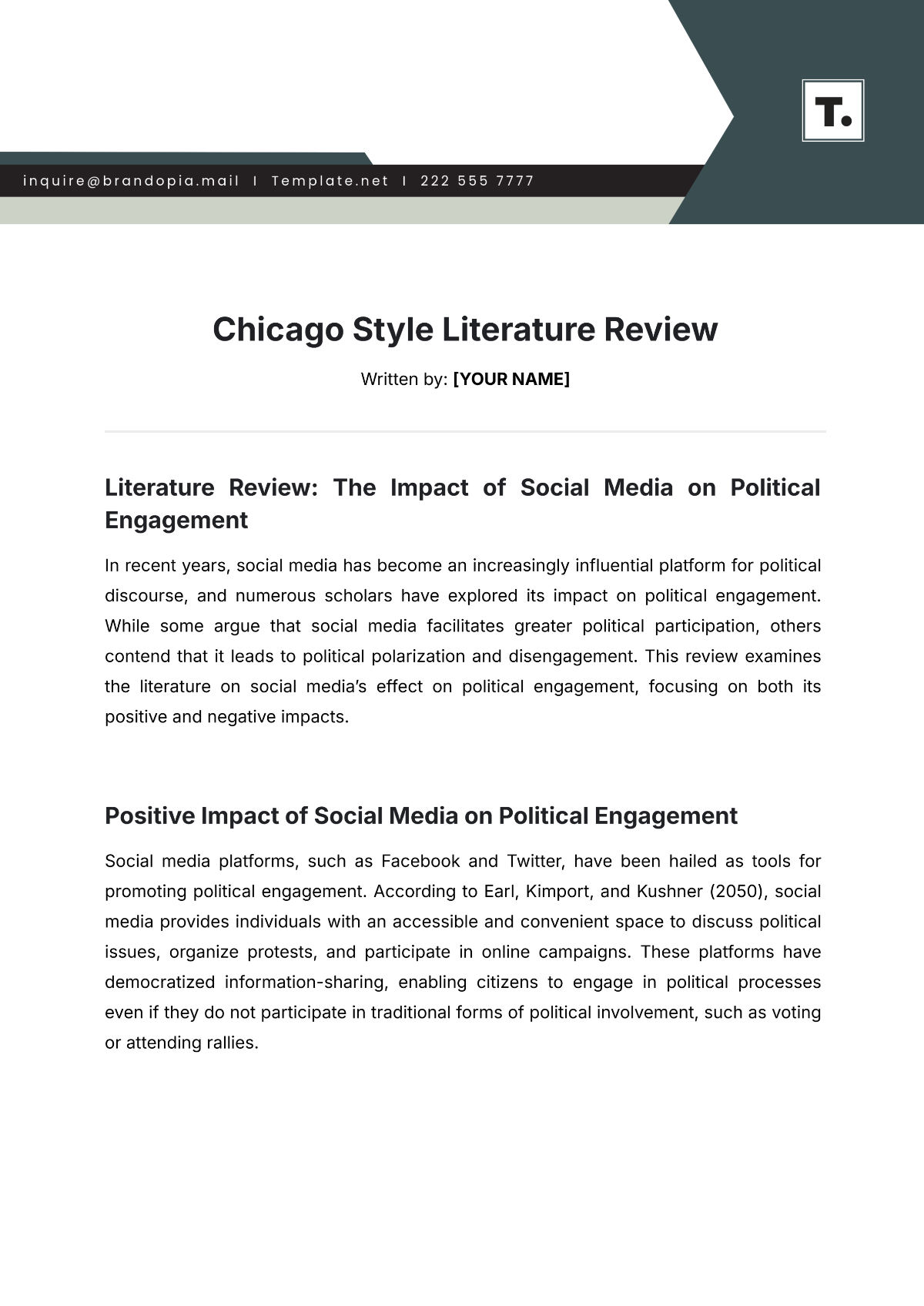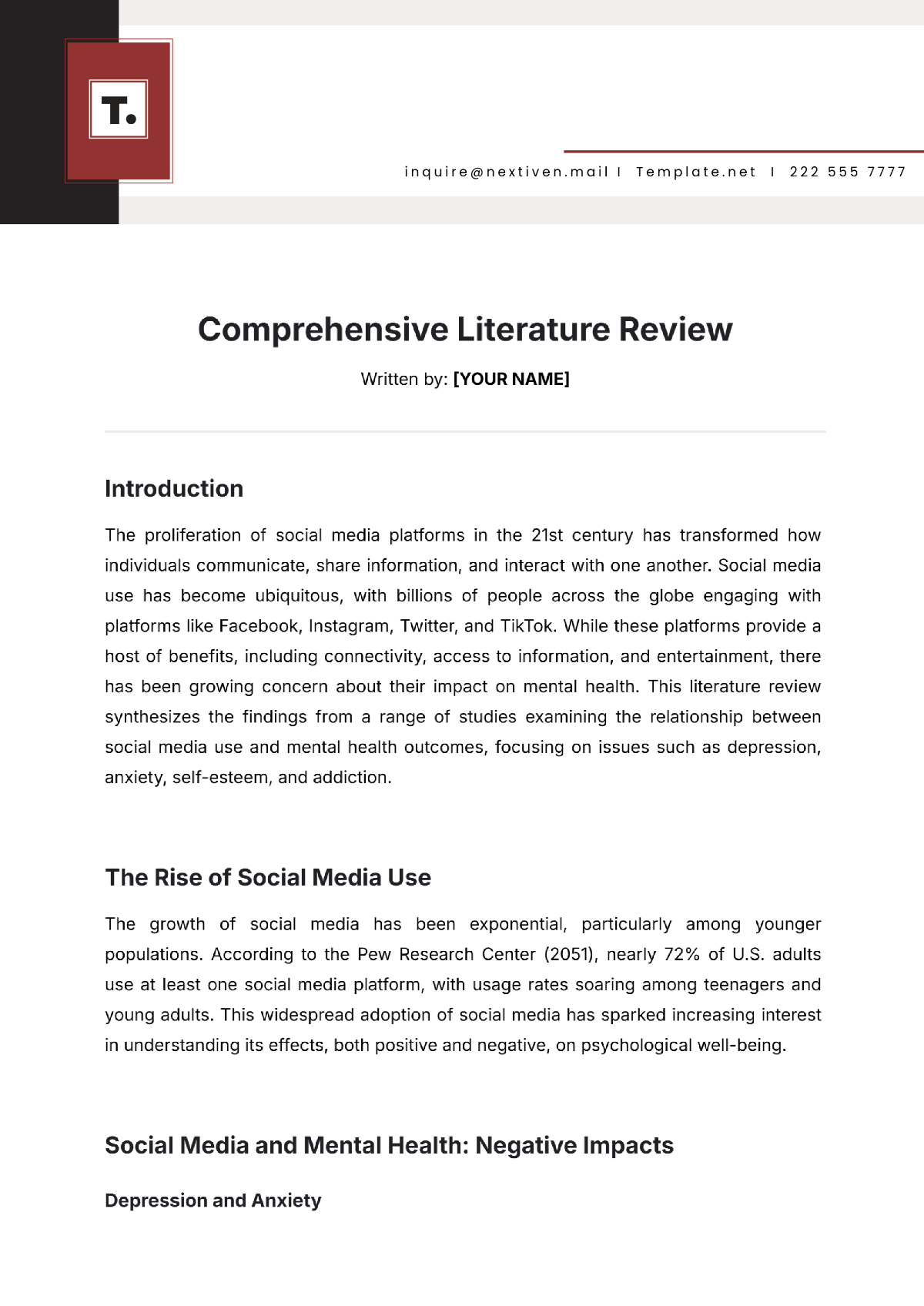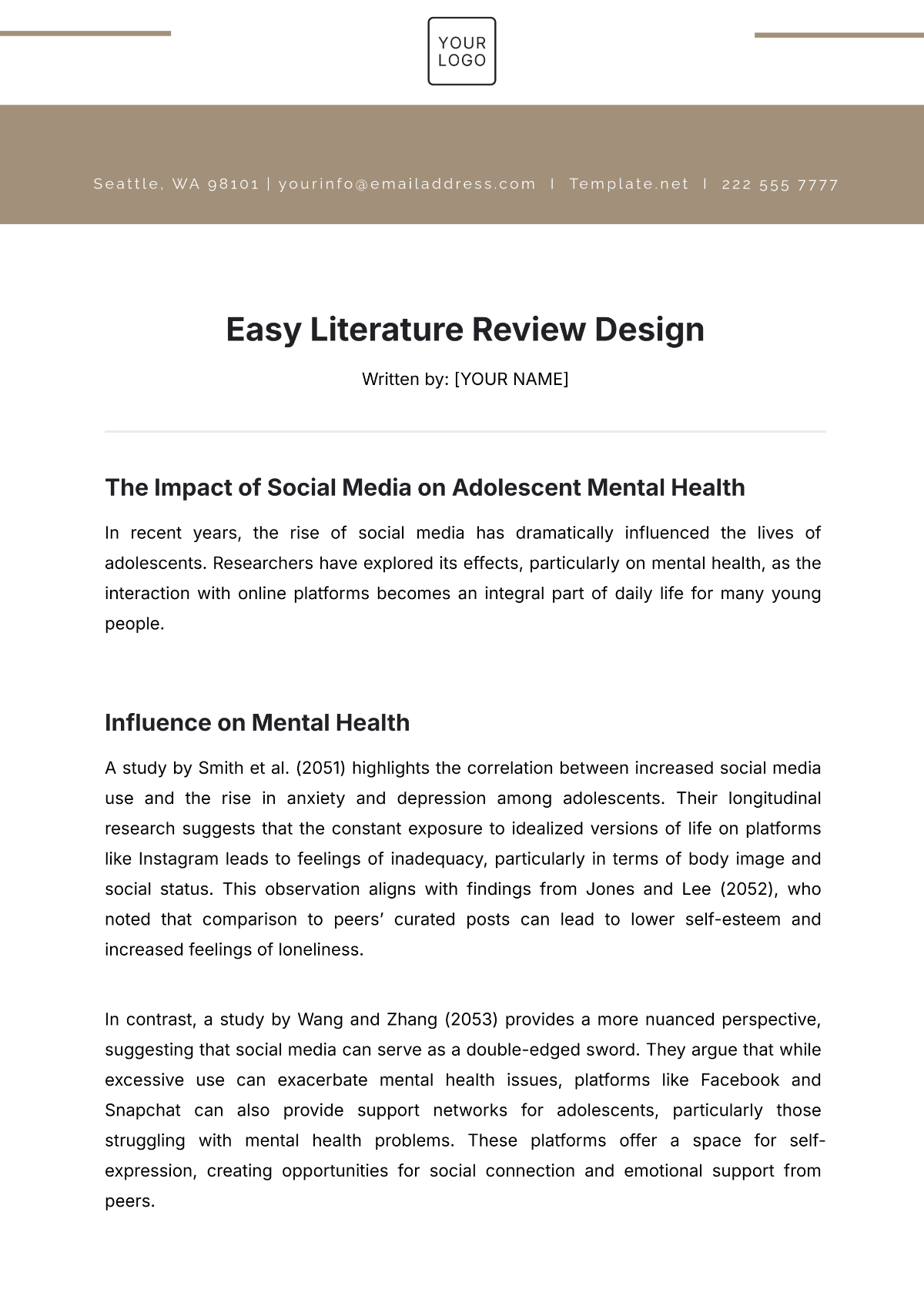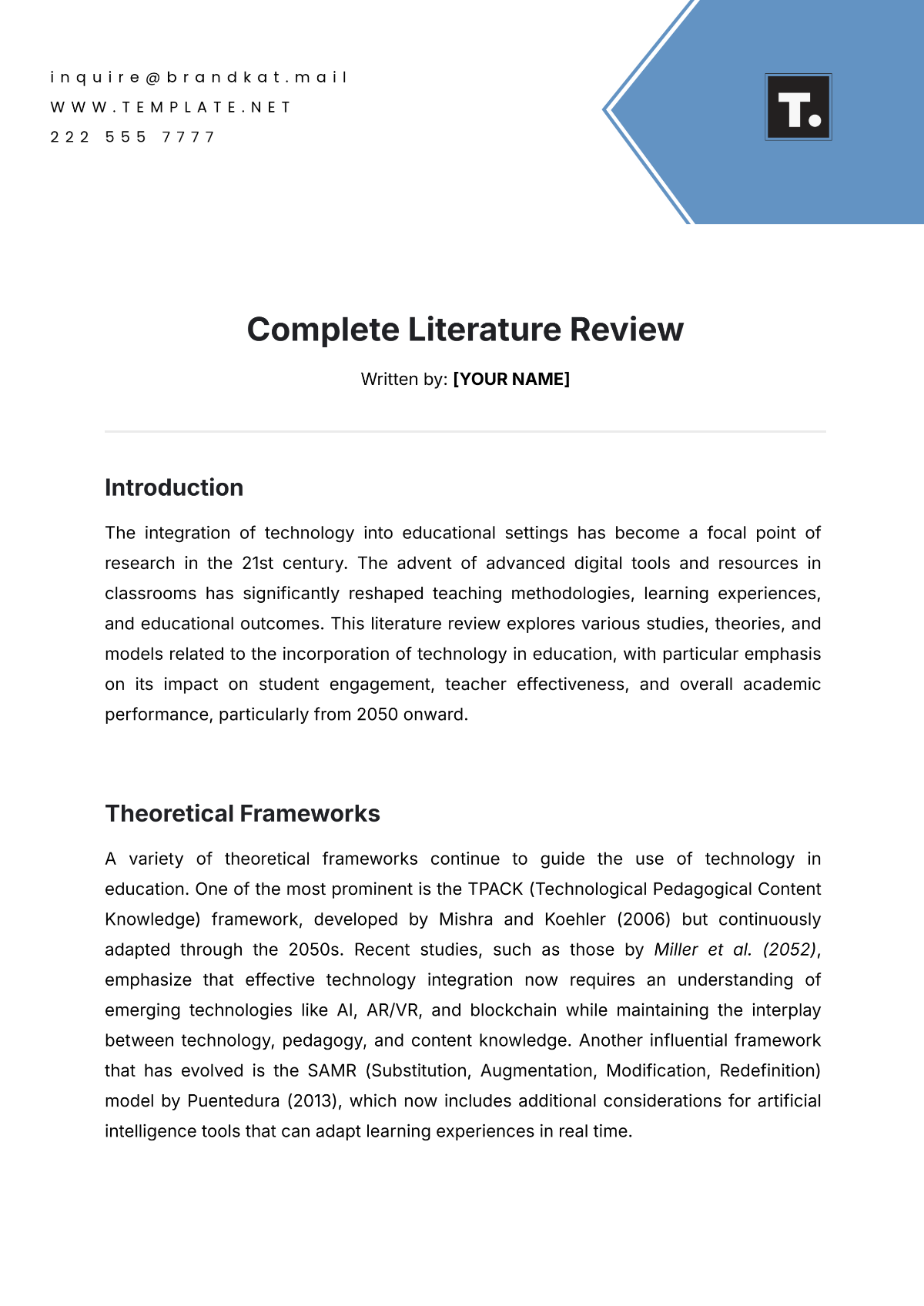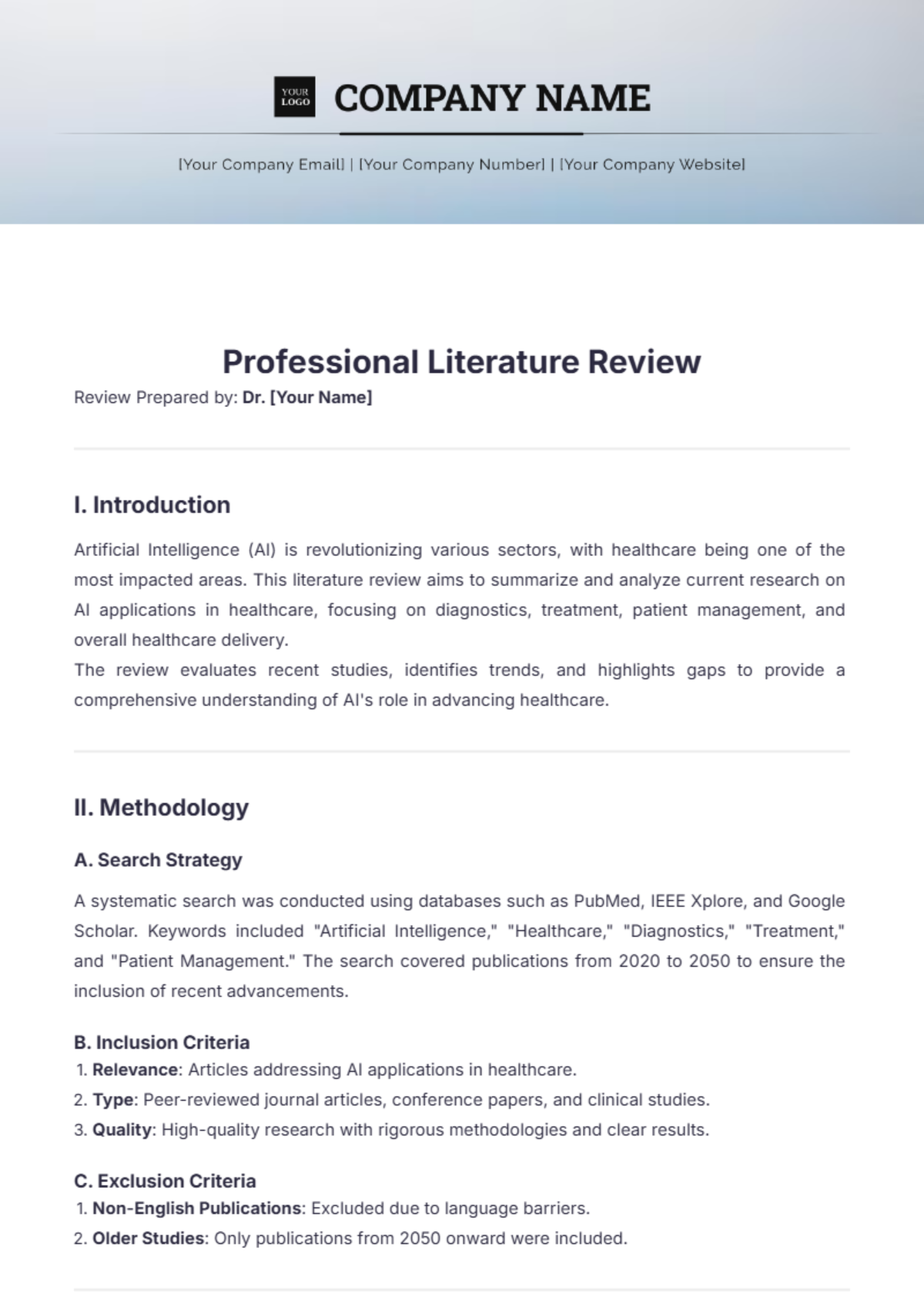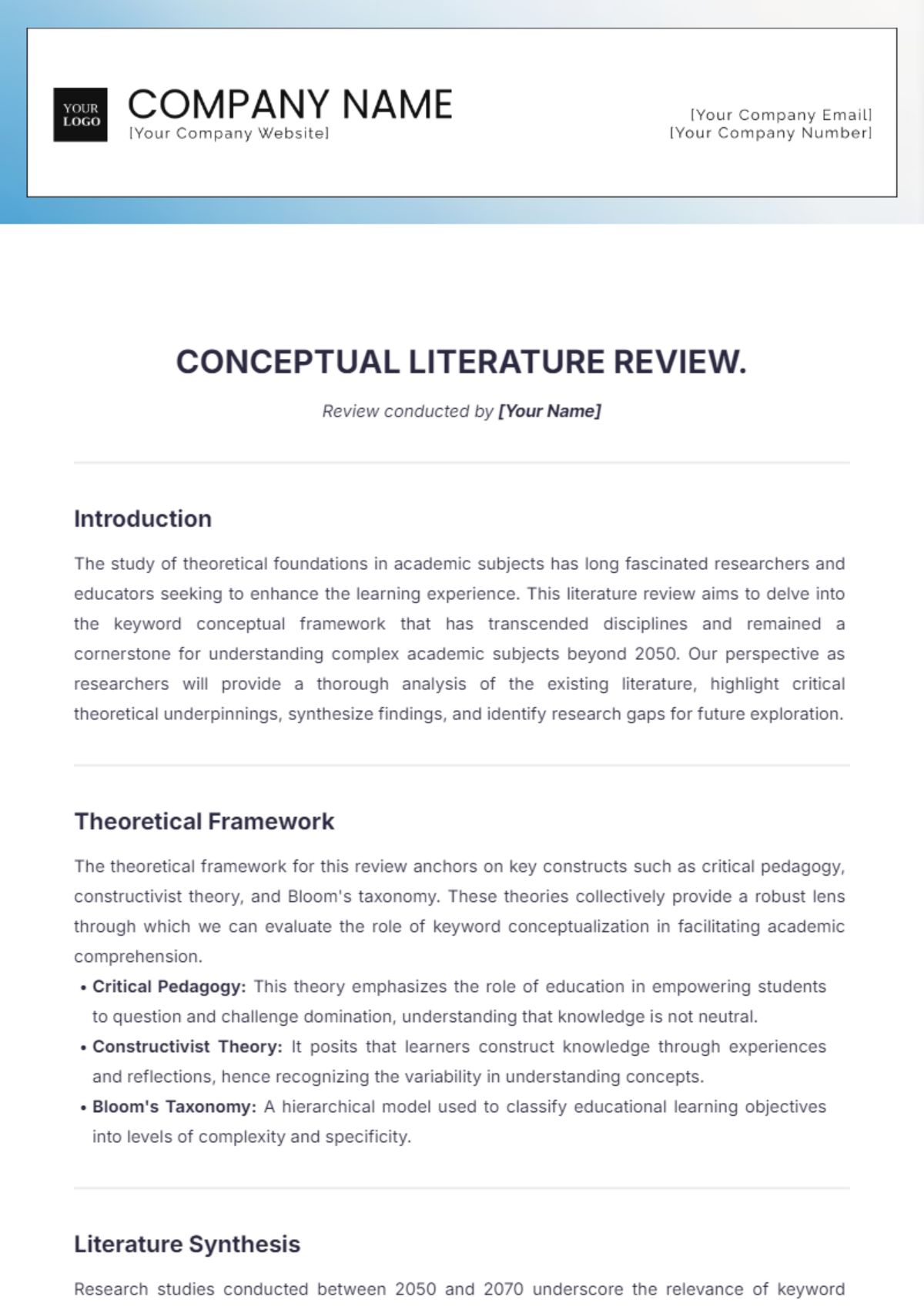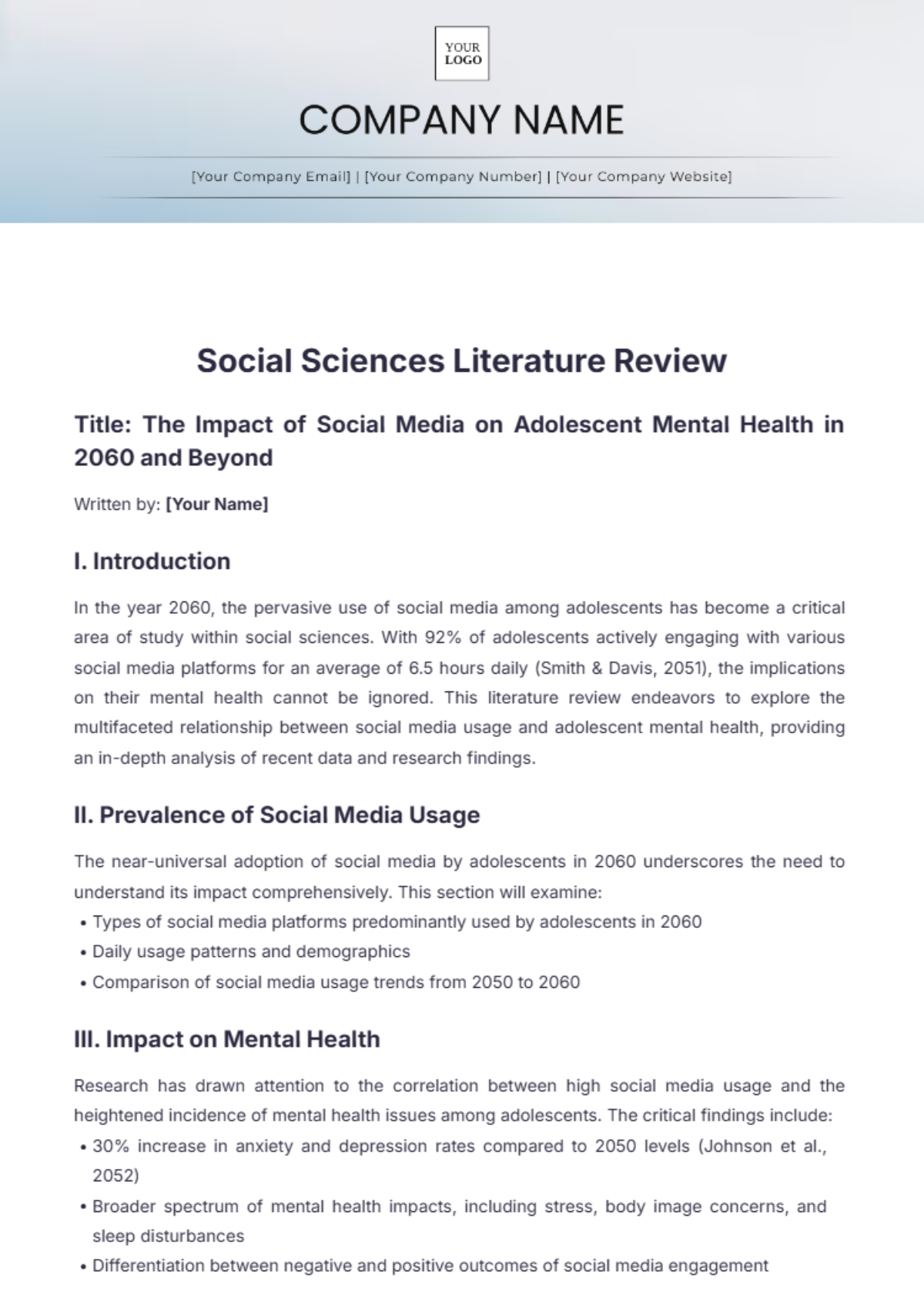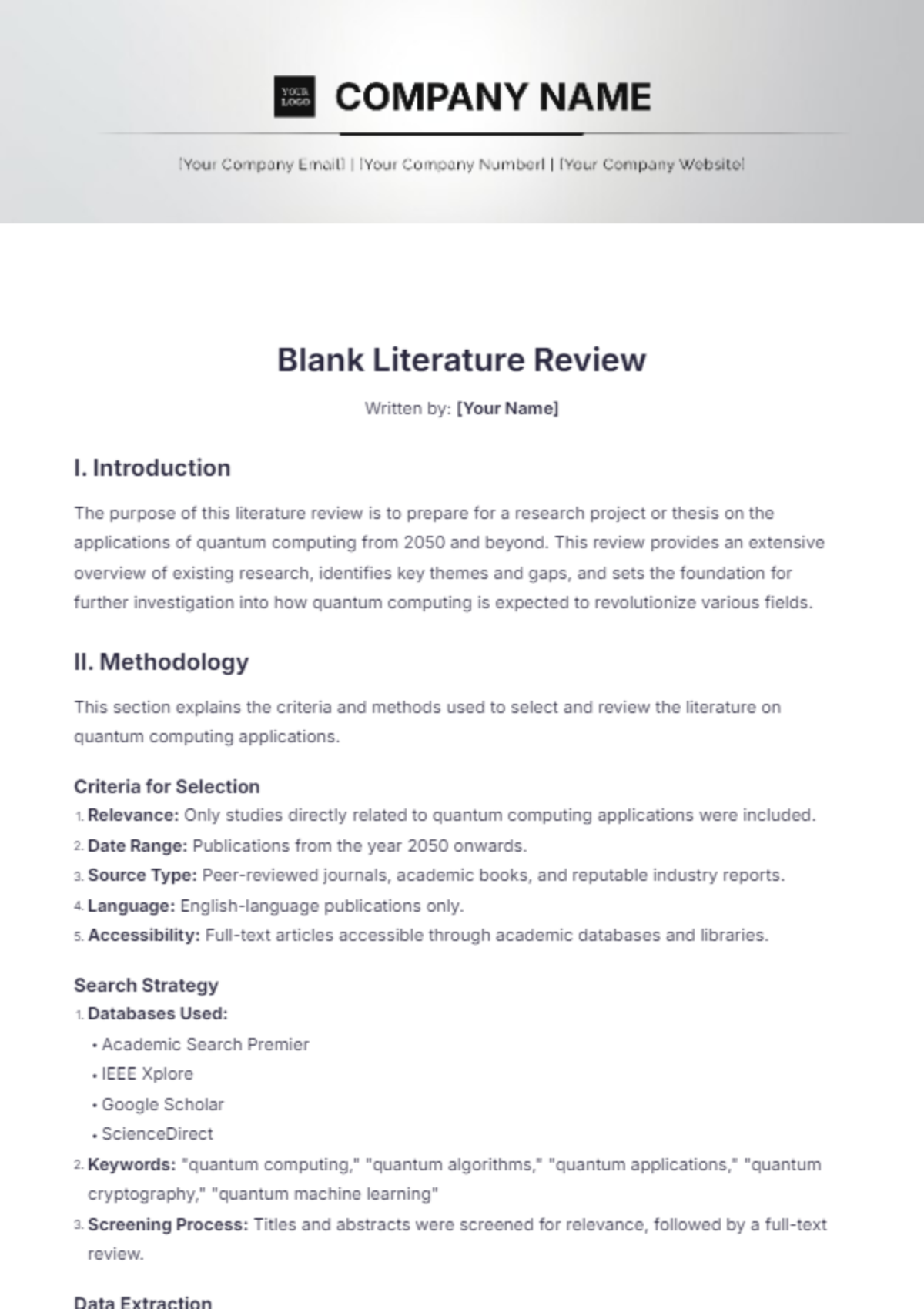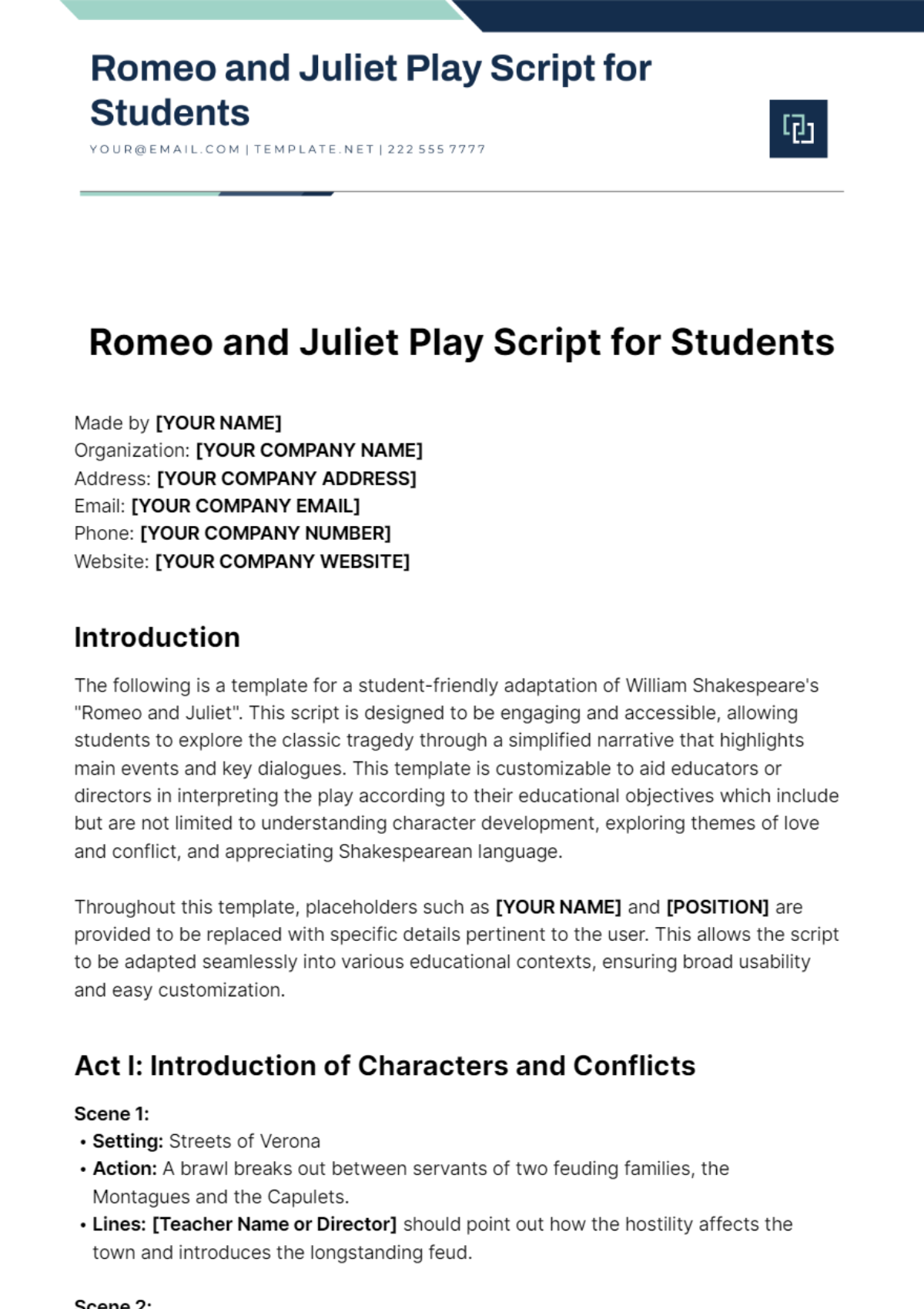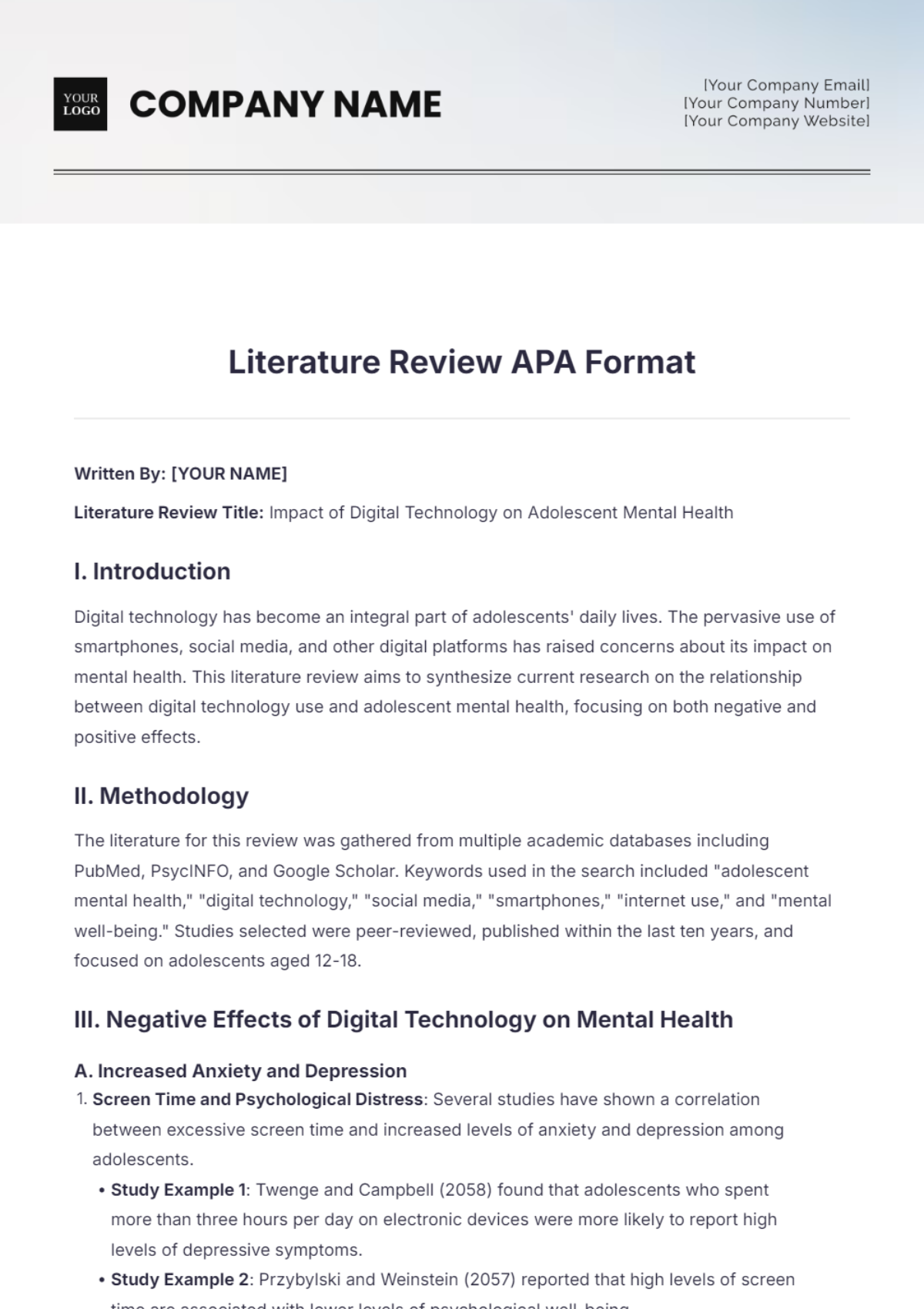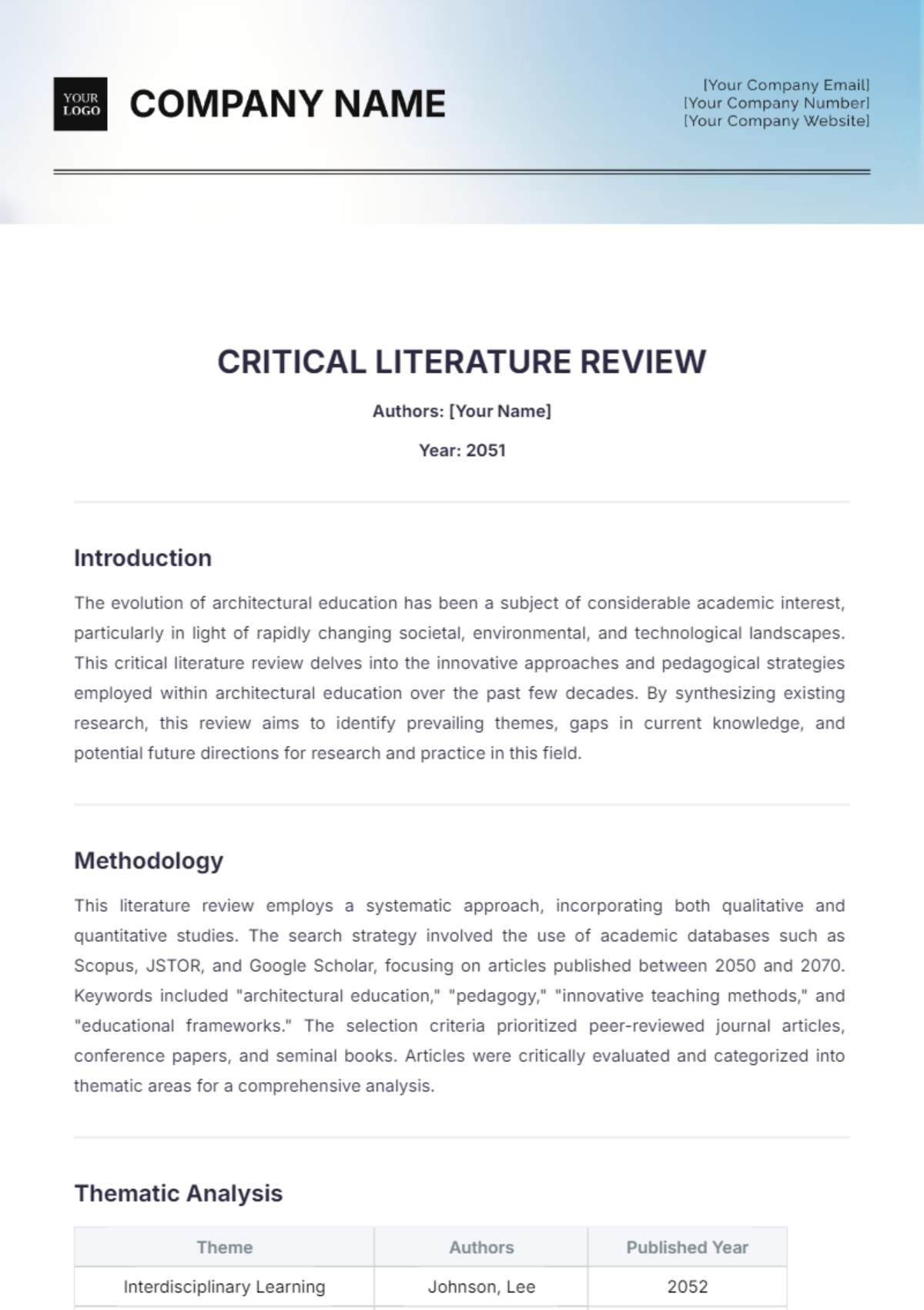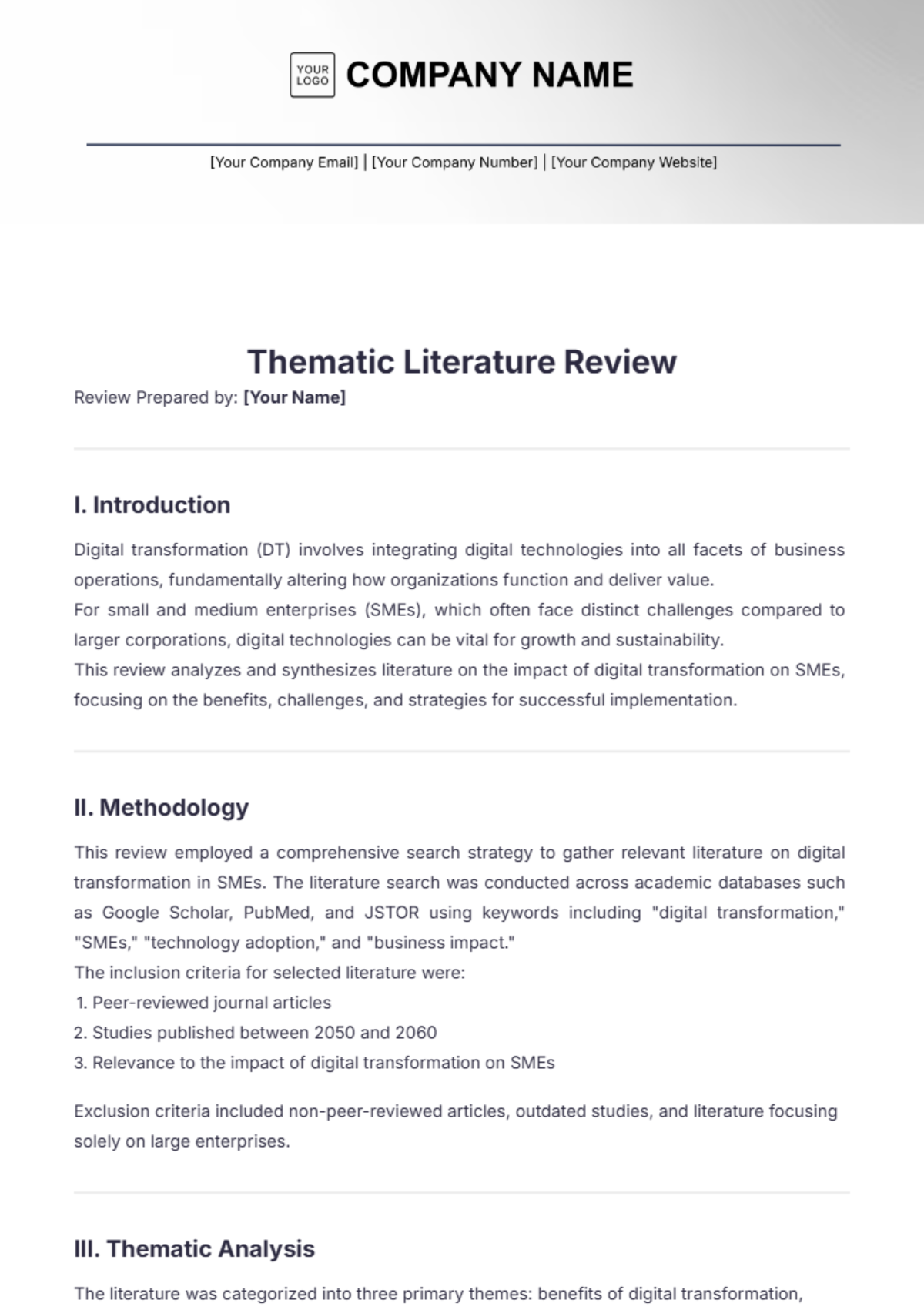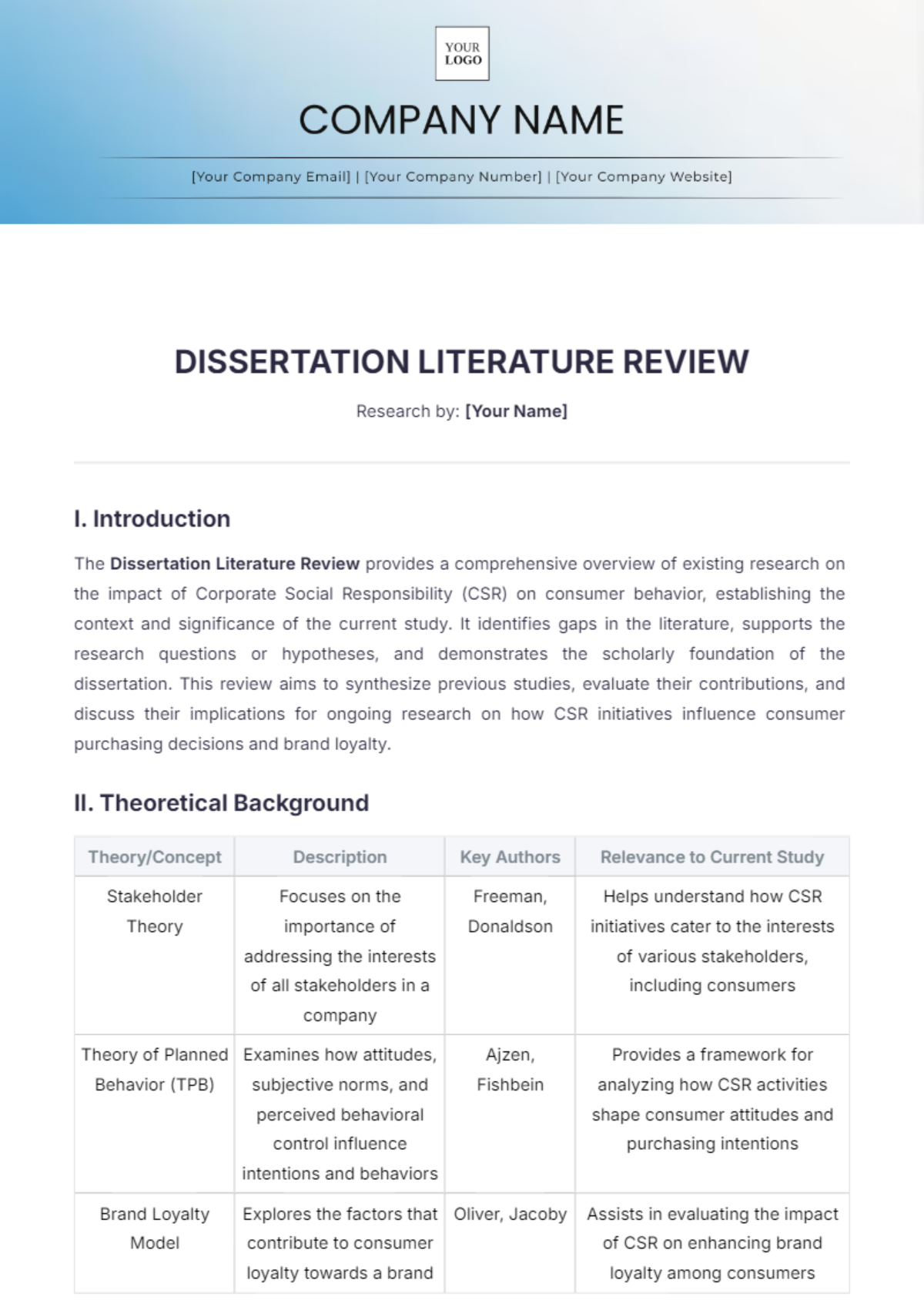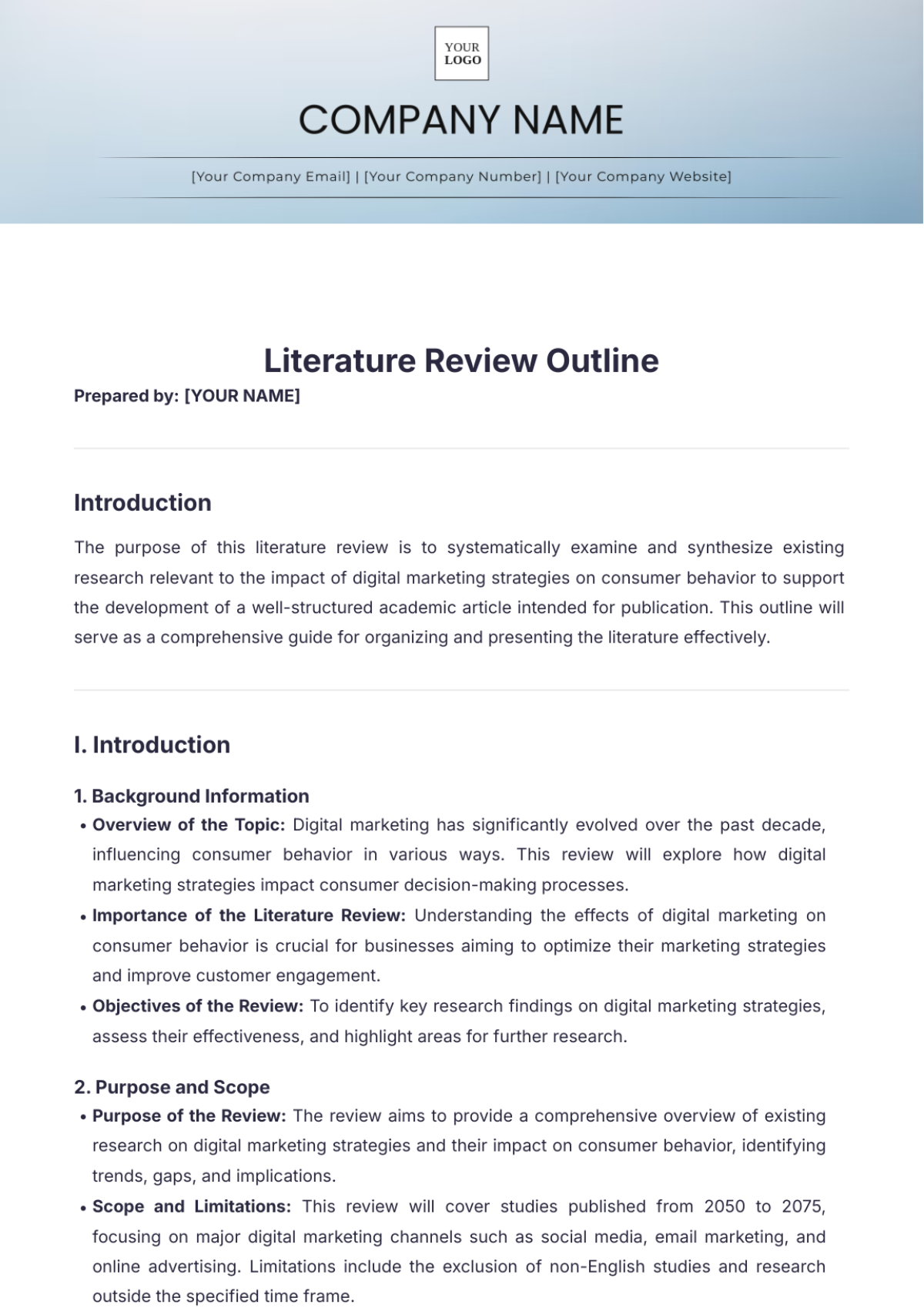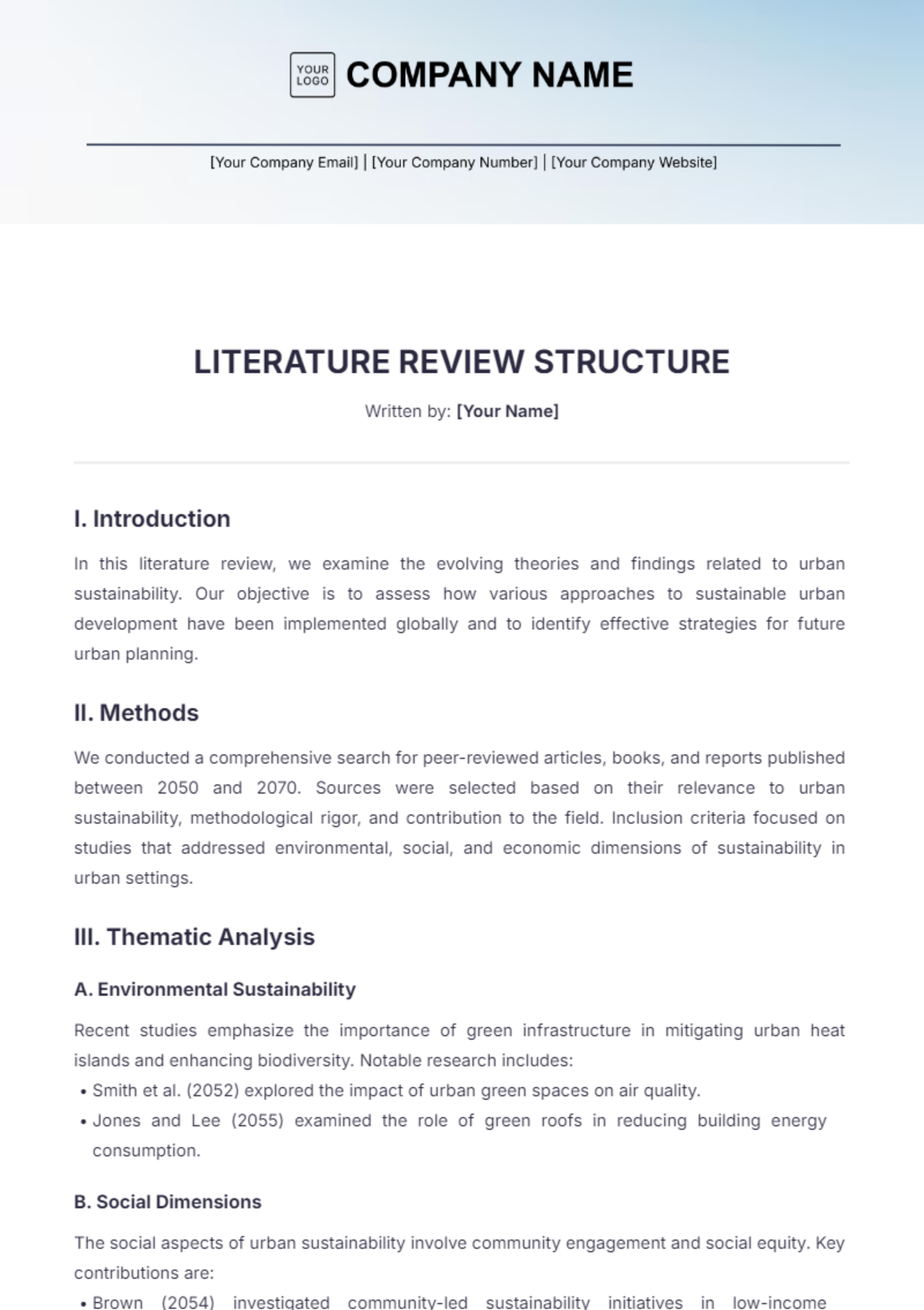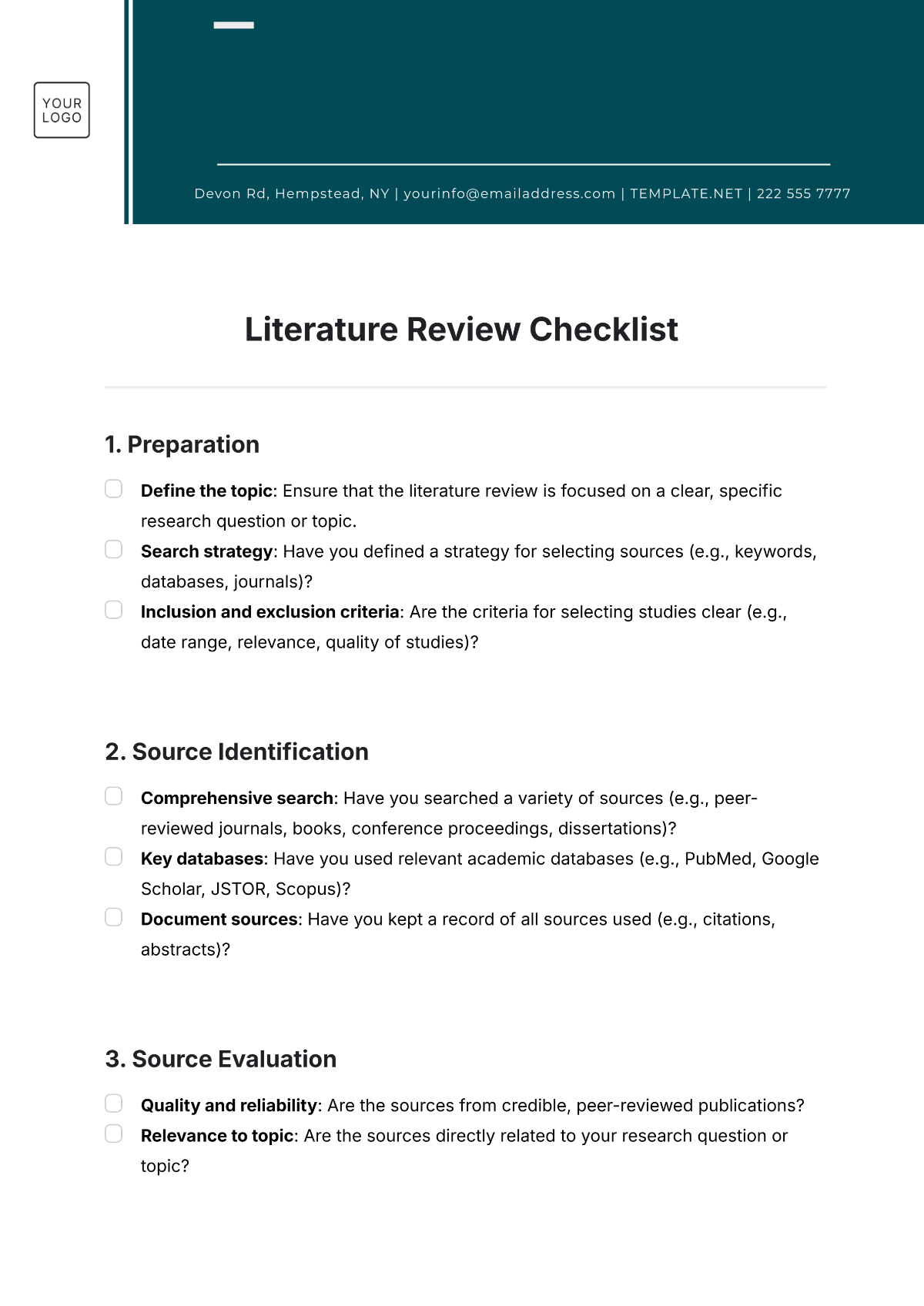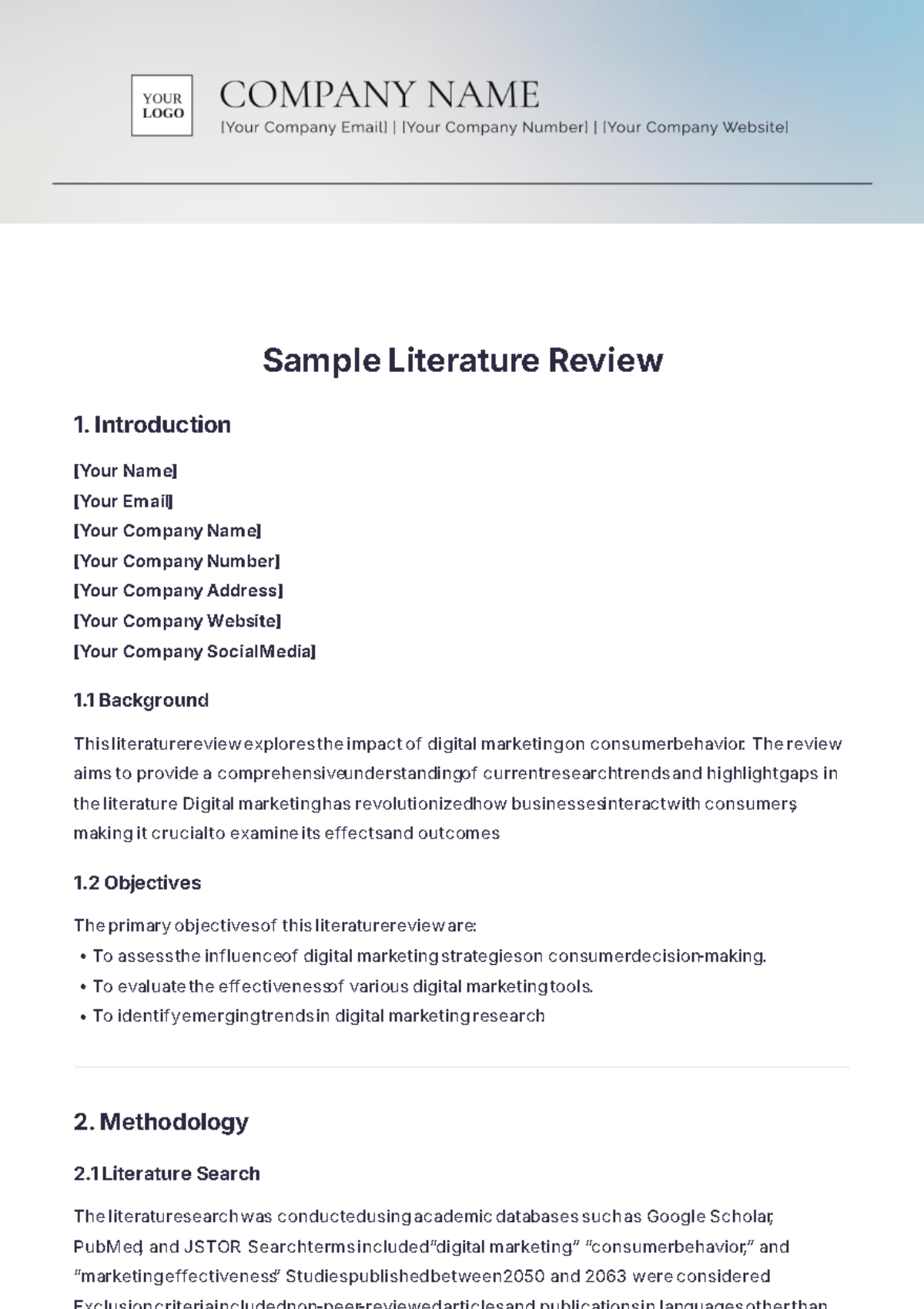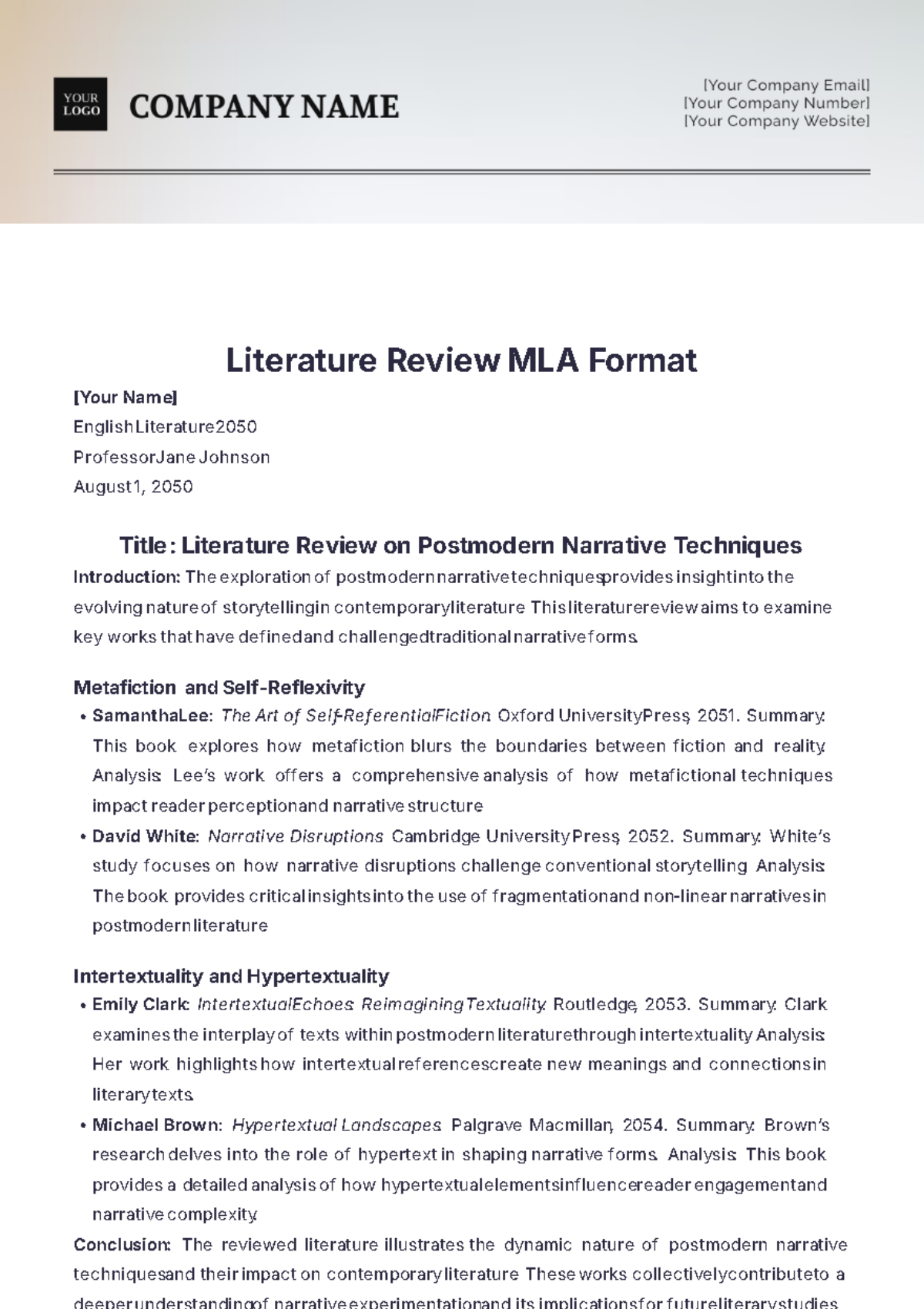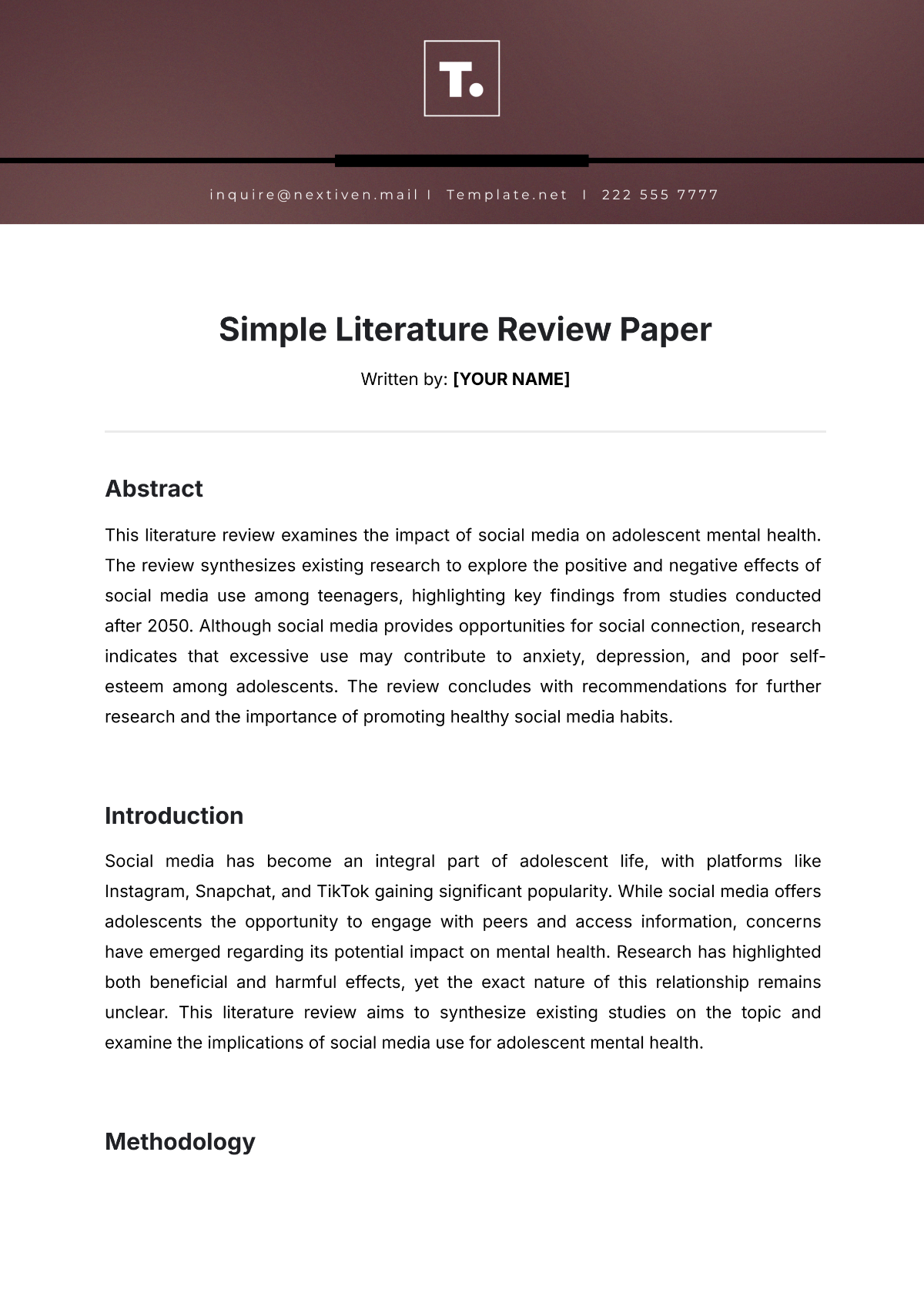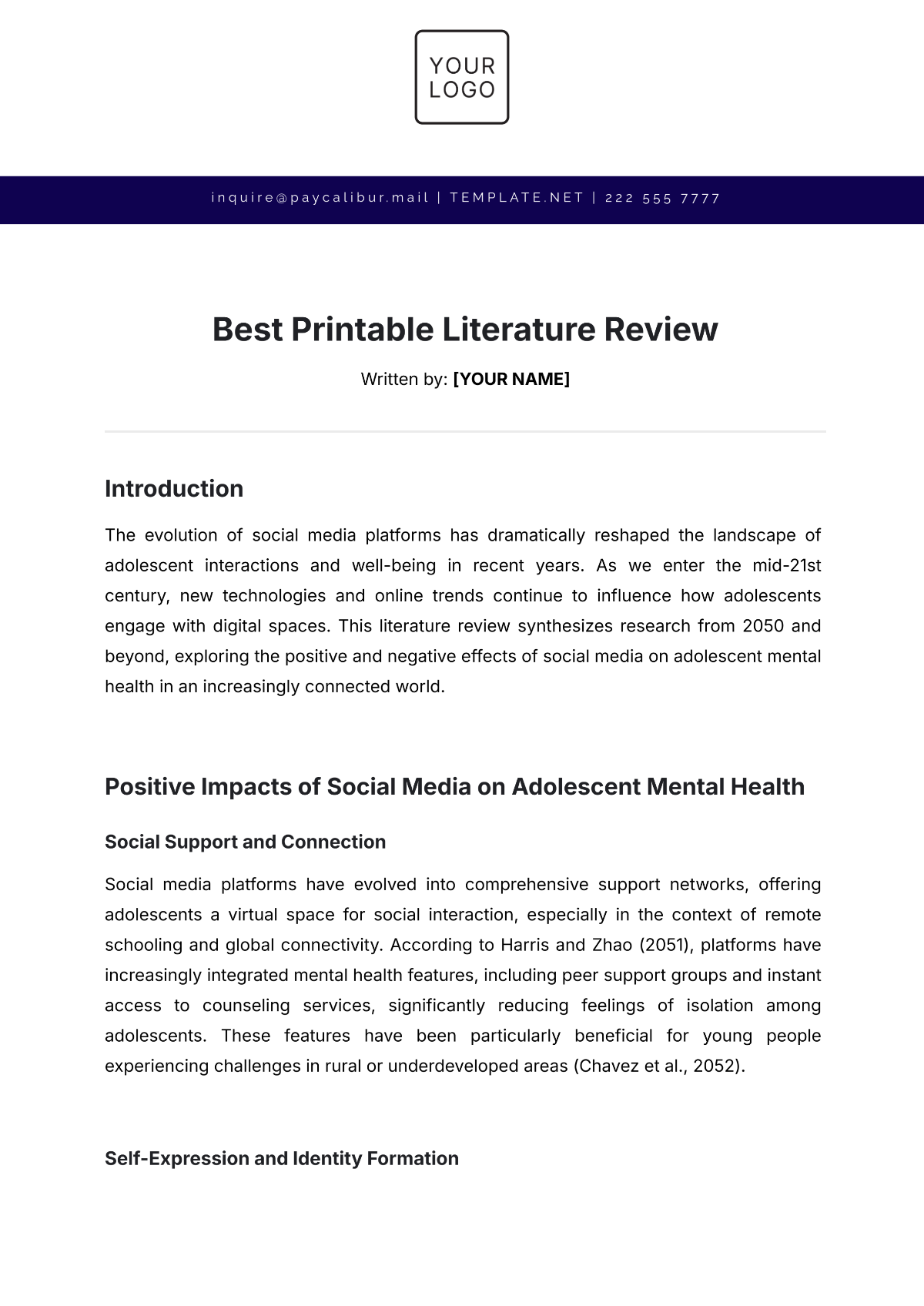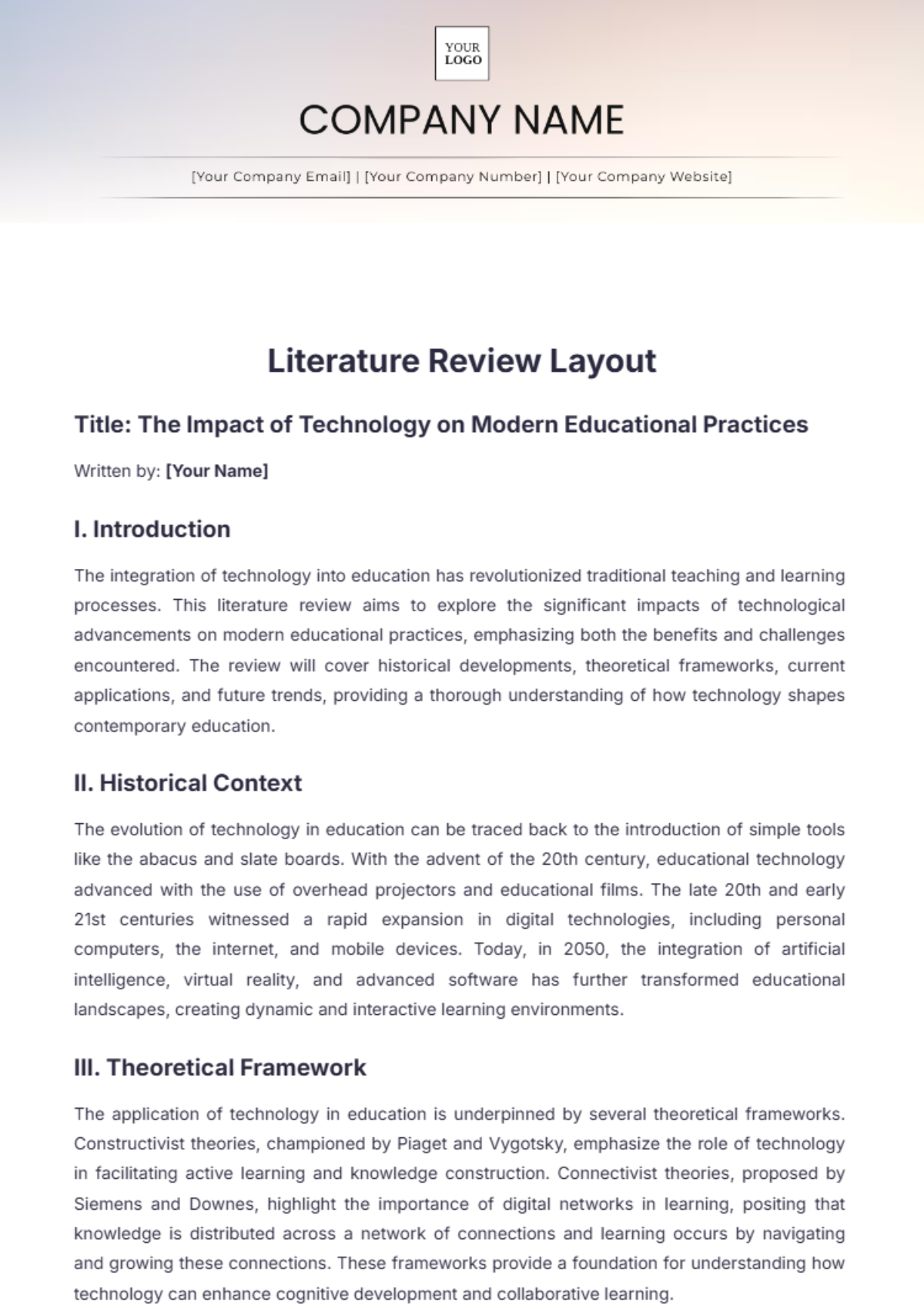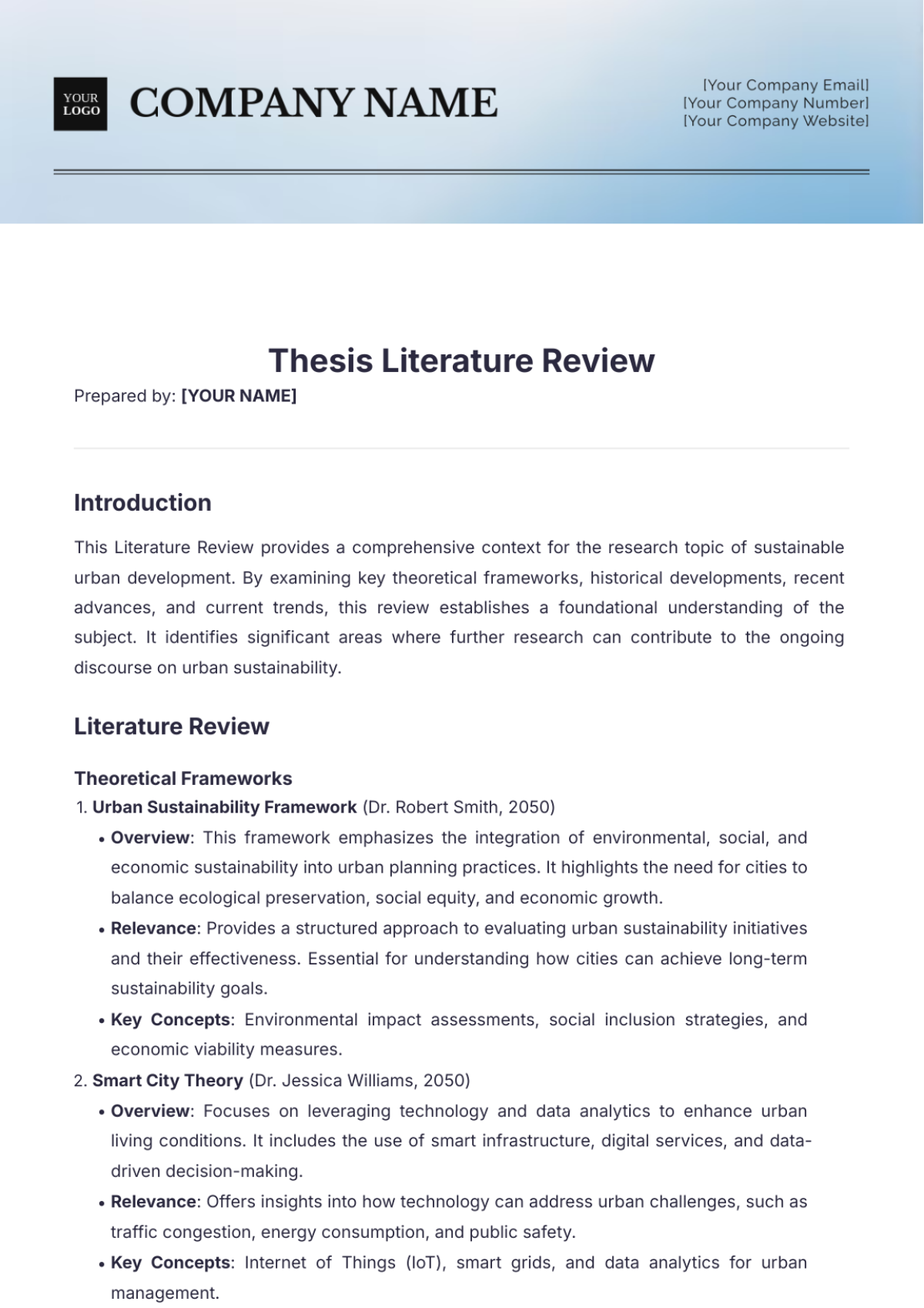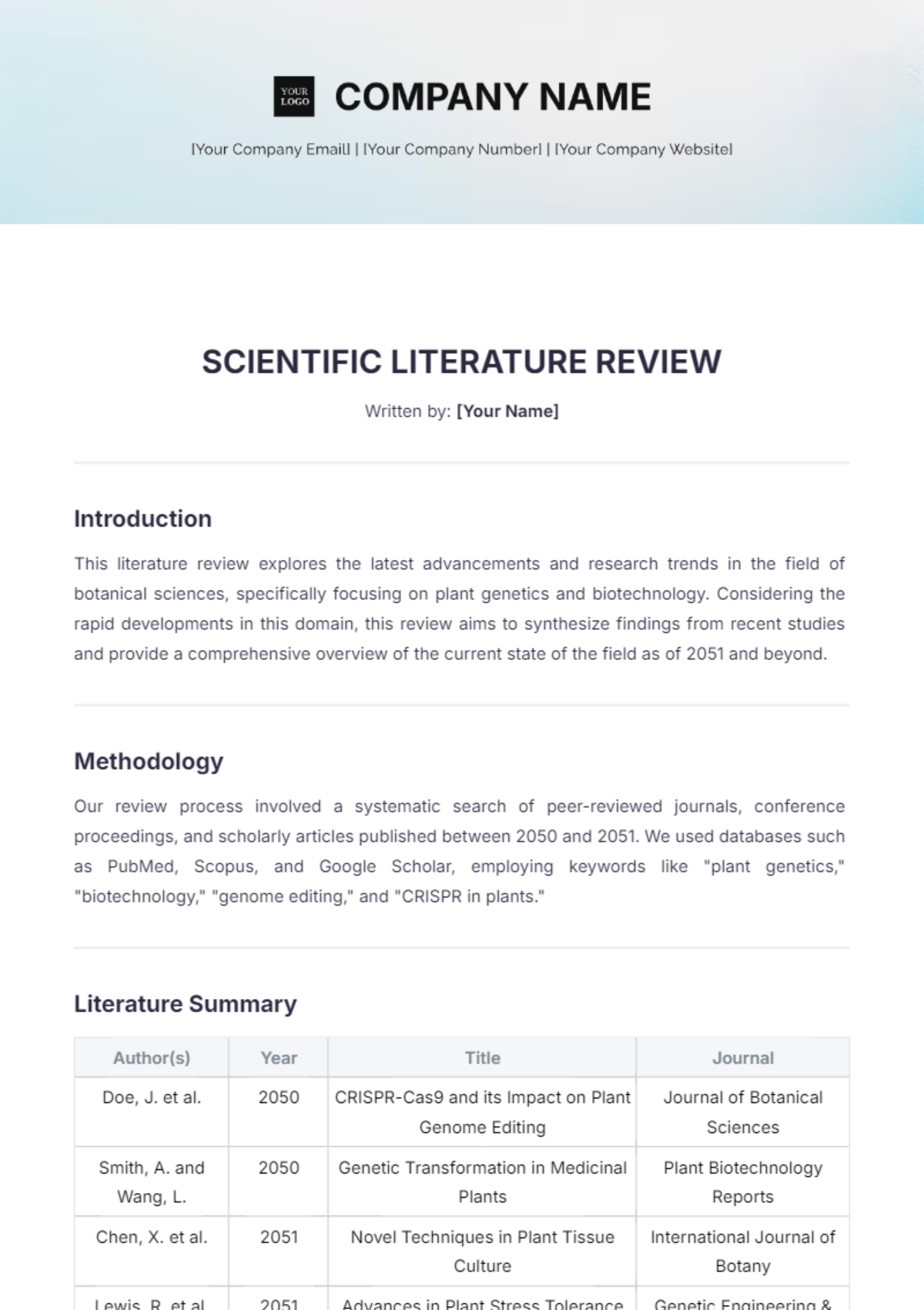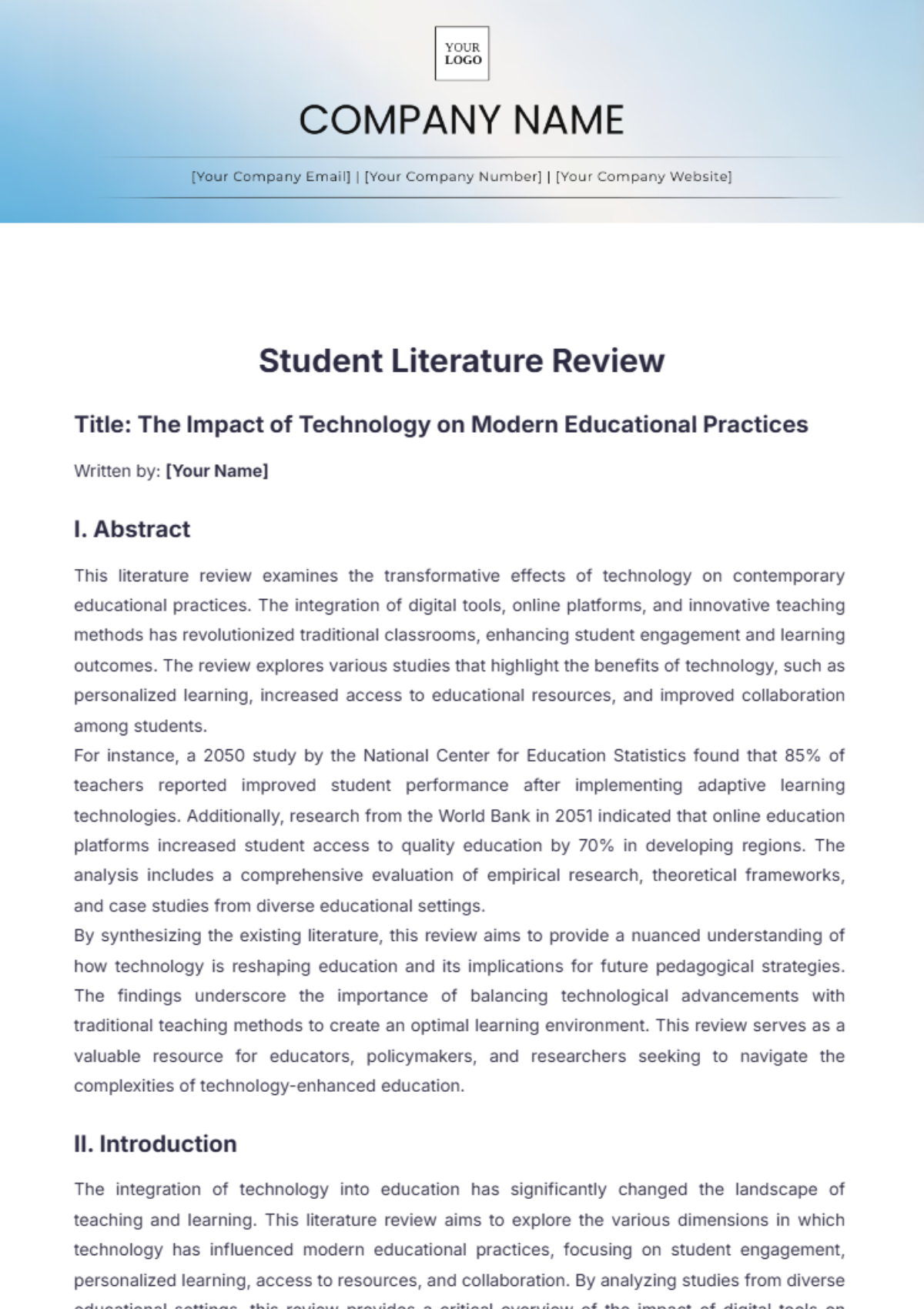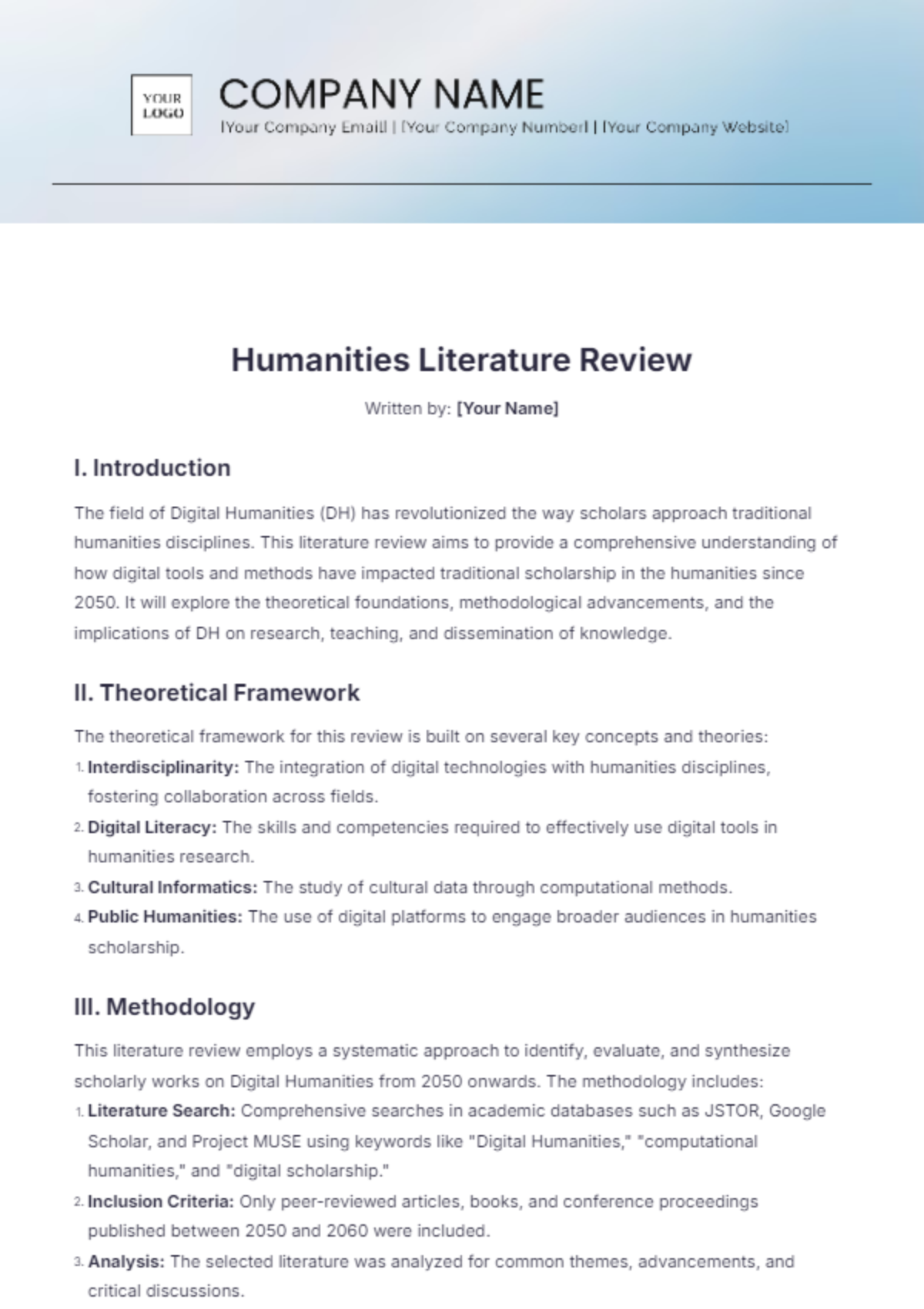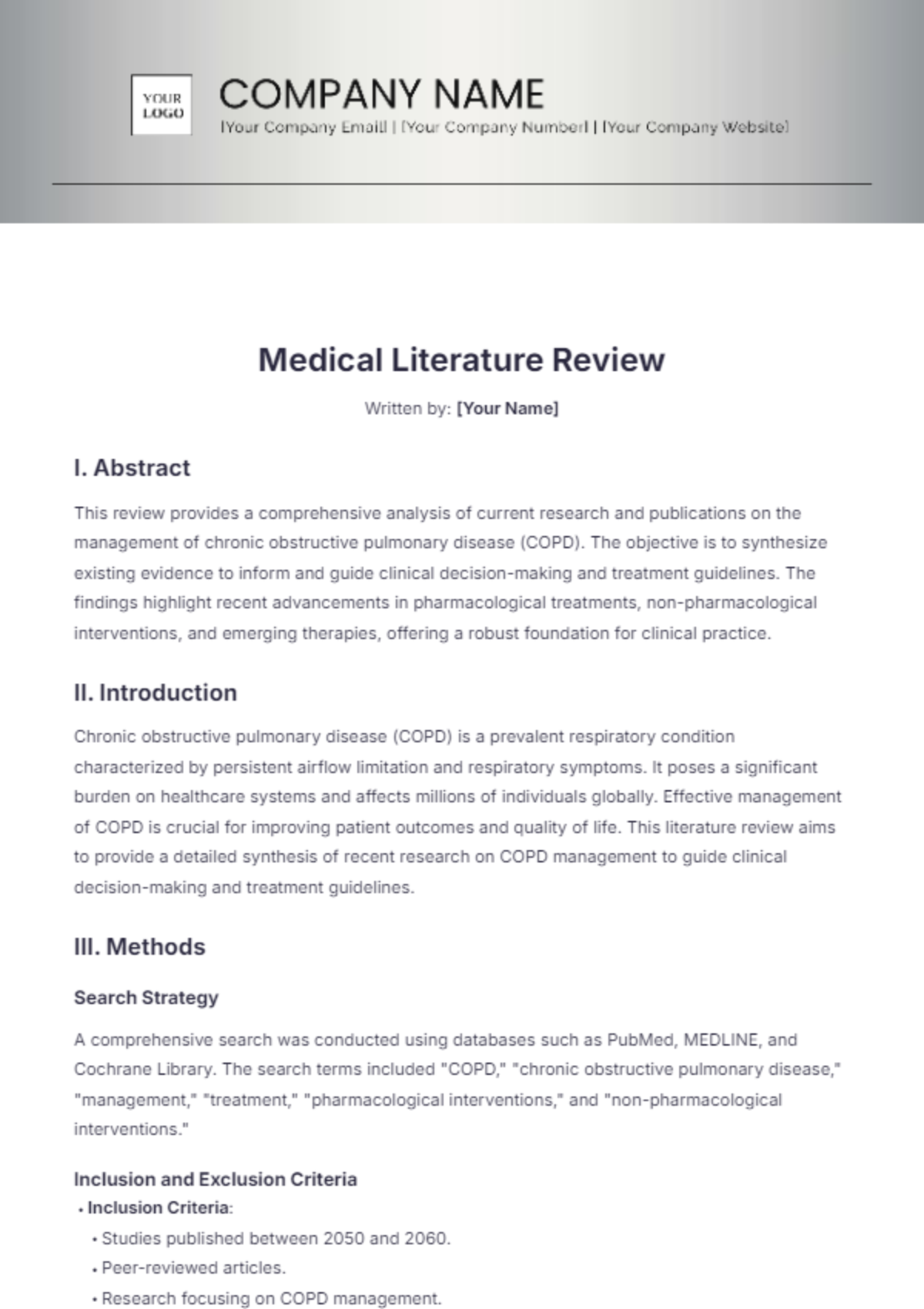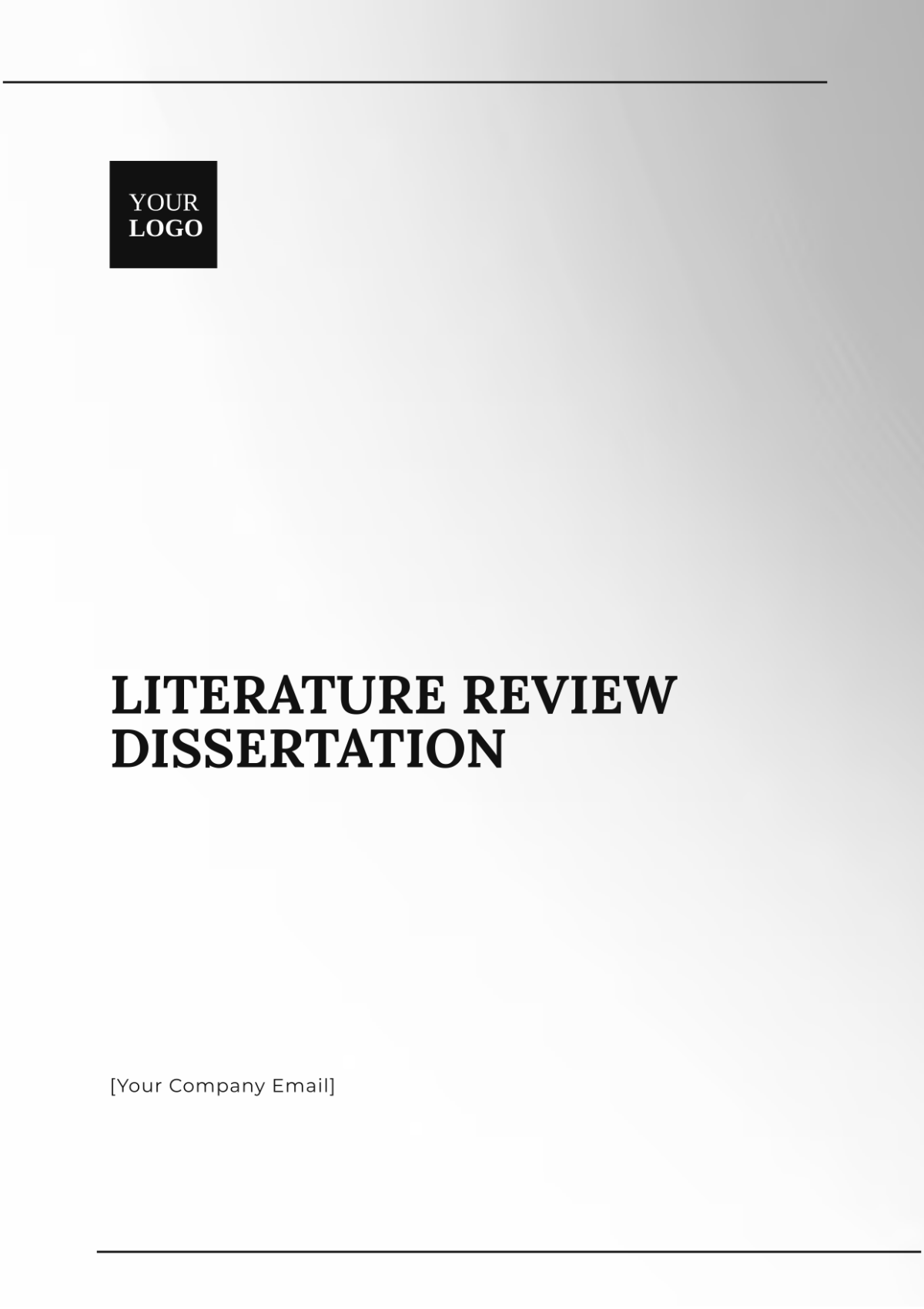How to Write a Literature Review: A Comprehensive Guide
Prepared by: [Your Name]
I. Introduction to Writing a Literature Review
A literature review is an essential part of the research process, providing a comprehensive overview of existing studies, theories, and key concepts in a specific field. Writing a literature review requires organizing relevant information from scholarly sources in a way that is both informative and coherent. It allows you to demonstrate your understanding of the topic and highlights the gaps in the existing literature that your research may aim to address.

In this guide, you will learn the essential steps to write a literature review, explore common challenges, and discover strategies to make your review thorough and effective.
II. Steps to Writing a Literature Review
Writing a well-organized literature review involves several key steps. Here's a breakdown of the process:

1. Identify Your Research Topic
Before diving into writing your literature review, it’s crucial to clearly define the research question or topic you will focus on. This will guide your search for relevant literature and ensure your review remains focused.
Key points to consider:
Ensure the topic is narrow enough to allow a thorough review.
Consider the relevance of the sources to your research.
Clarify the scope (e.g., time, geographical focus, specific sub-field).
2. Conduct Comprehensive Research
To write an informed literature review, you need to gather relevant articles, books, and other scholarly works. Utilize reputable academic databases such as:
Google Scholar
JSTOR
PubMed
Web of Science
Ensure to include both seminal works and the most recent studies to give your review balance and credibility.
3. Organize the Literature
Once you've gathered a variety of sources, it’s time to organize them. A common approach is to categorize the literature by themes, trends, or methodological approaches.
Methods for organizing your literature:
Thematic organization: Group studies based on shared themes or concepts.
Chronological order: Present sources in the order they were published to demonstrate the evolution of ideas.
Methodological approach: Categorize sources based on their research methodology (qualitative vs. quantitative).
III. Structuring Your Literature Review
A well-structured literature review is essential for clarity and readability. Below is a suggested structure for your review.
1. Introduction
Begin with an introductory paragraph that provides context for your research topic. In this section, explain why the literature review is important and outline the main objectives of your review.
Key points to include in your introduction:
Overview of the research topic
Purpose of the literature review
Scope and limitations of the review
2. Main Body
The main body of your literature review should discuss each source or group of sources you’ve reviewed, synthesizing their findings and showing how they contribute to your understanding of the topic.
Summarize key studies and highlight their findings.
Analyze the strengths and weaknesses of each study.
Compare and contrast differing viewpoints.
3. Conclusion
Conclude your literature review by summarizing the key findings and highlighting the gaps in the current research that your study aims to fill.
Checklist for your conclusion:
Restate the significance of the topic.
Summarize key themes and findings from the literature.
Identify areas for further research.
IV. Common Mistakes to Avoid
When writing a literature review, there are several common pitfalls to watch out for:
Not being critical enough: Don’t just summarize the studies; engage with them critically.
Lack of focus: Avoid including irrelevant studies that don't contribute to the overall objective of your review.
Plagiarism: Acknowledging other authors' work is crucial for respecting their contributions and maintaining review integrity. It demonstrates professionalism, upholds ethical standards, and fosters knowledge exchange in the community.
Being too descriptive: A literature review should not simply describe studies—it should analyze and synthesize them to build a cohesive narrative.
Tips for Avoiding Mistakes:
Use citations appropriately to avoid plagiarism.
Focus on studies that directly contribute to your research question.
Provide critical analysis of the studies rather than simply summarizing them.
V. Final Tips for Writing a Strong Literature Review
To ensure your literature review is comprehensive, critical, and well-organized, consider the following strategies:
Start early: Give yourself enough time to gather and read the relevant literature.
Stay organized: Use tools like reference management software (e.g., Zotero, Mendeley) to keep track of your sources.
Be systematic: Develop a clear plan for your review, including how to categorize your sources.
Seek feedback: Ask colleagues, mentors, or advisors to review your draft for clarity and completeness.
Checklist for a strong literature review:
Clear research question: Focus on a well-defined research problem.
Organized structure: Ensure your review follows a logical flow.
Critical analysis: Analyze, not just summarize, the sources.
Proper citations: Follow citation style guidelines meticulously (APA, MLA, Chicago, etc.).
VI. Conclusion
Writing a literature review is a critical skill for researchers in any field. By following the steps outlined in this guide, you will be able to produce a review that not only summarizes existing knowledge but also contributes new insights to the field. Remember to remain organized, critical, and focused on your research question as you work through the literature review process.

By conducting thorough research, synthesizing findings, and adhering to a clear structure, you’ll be able to craft an effective and impactful literature review that sets the stage for your research.
